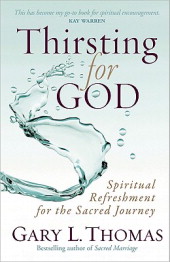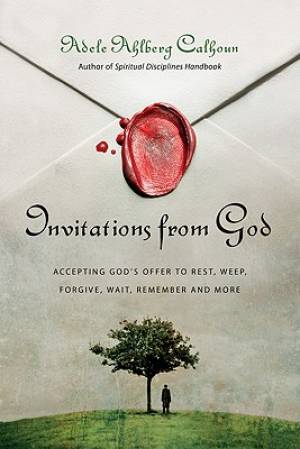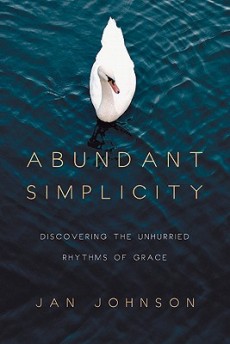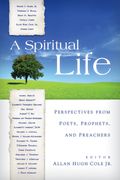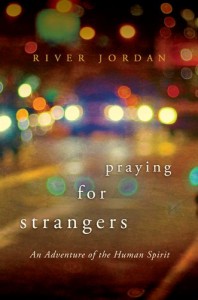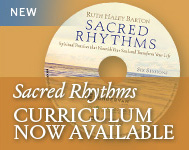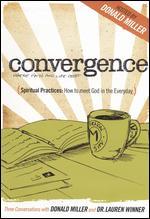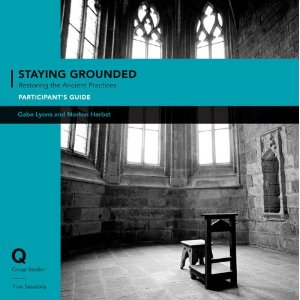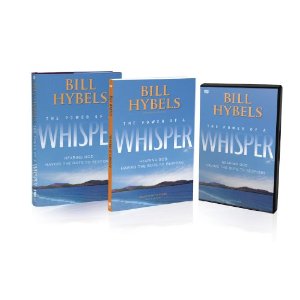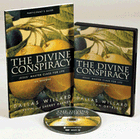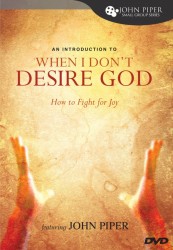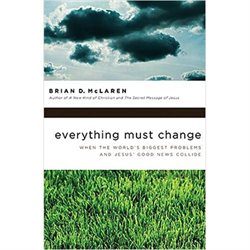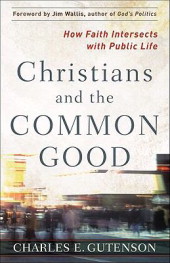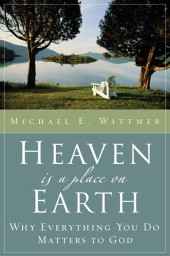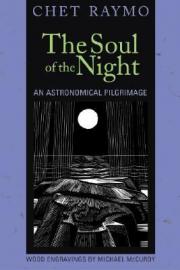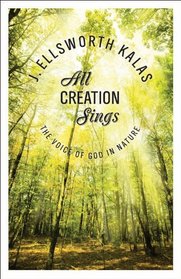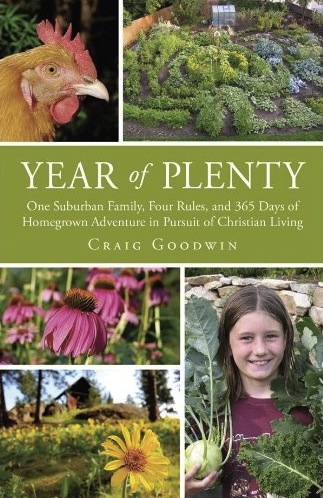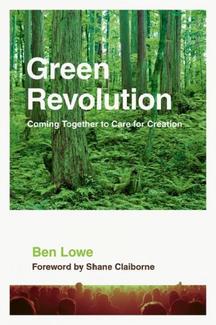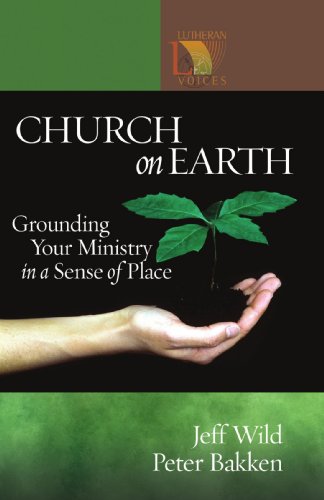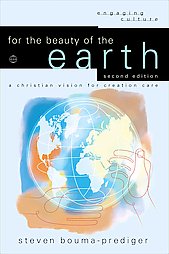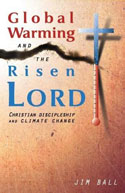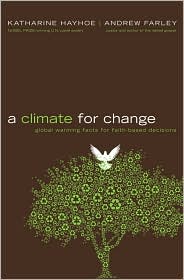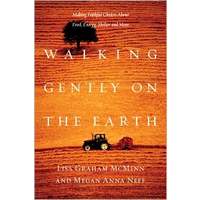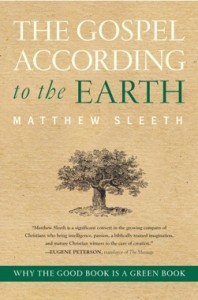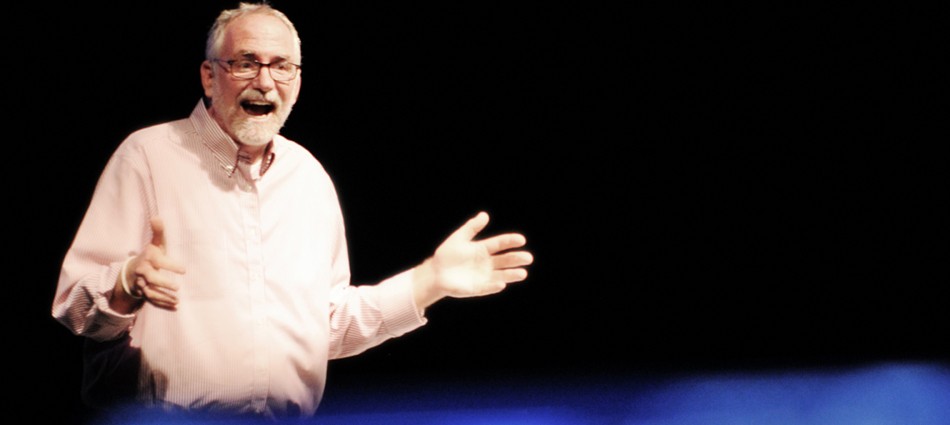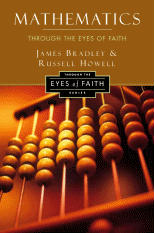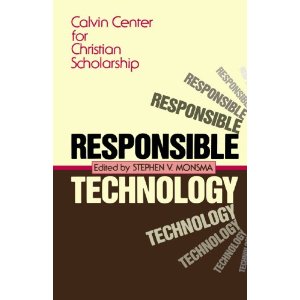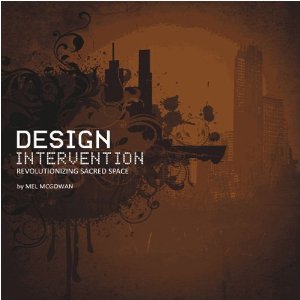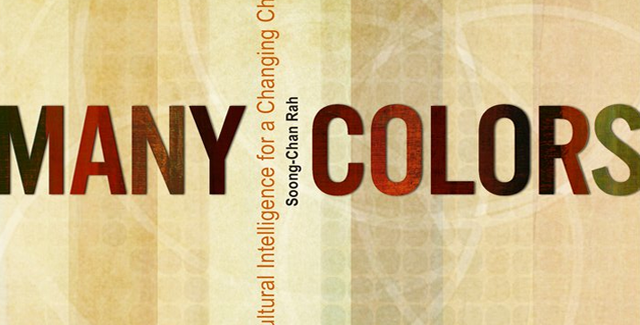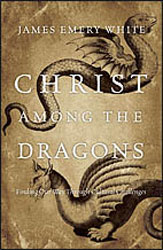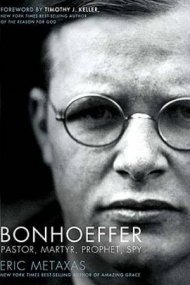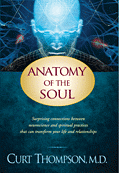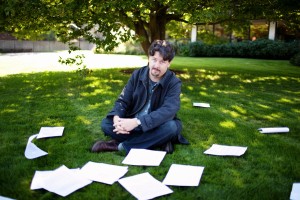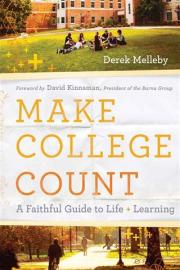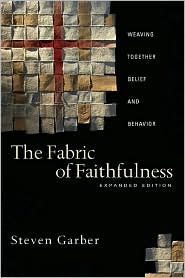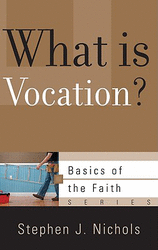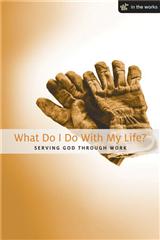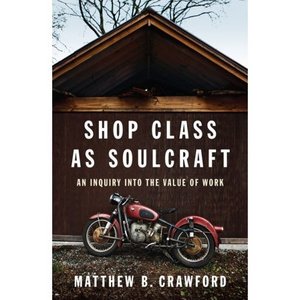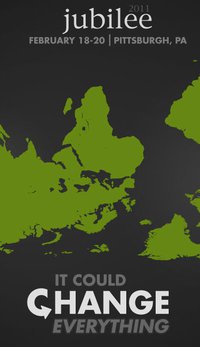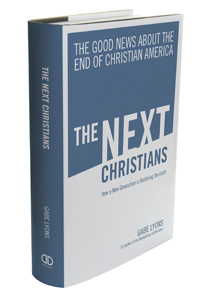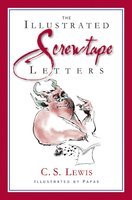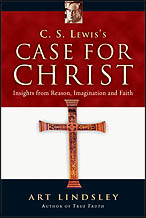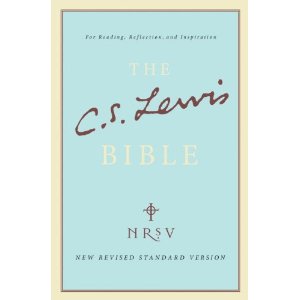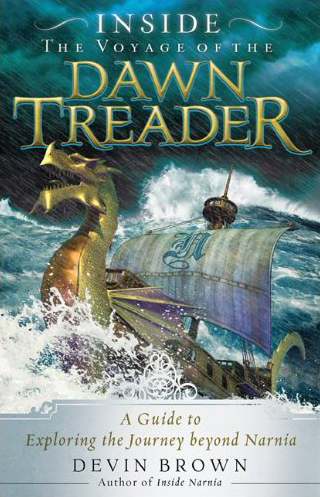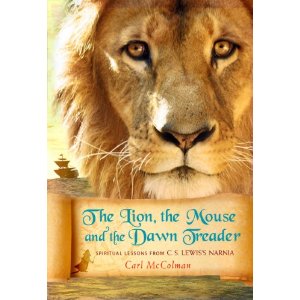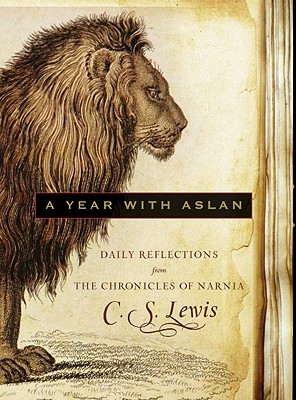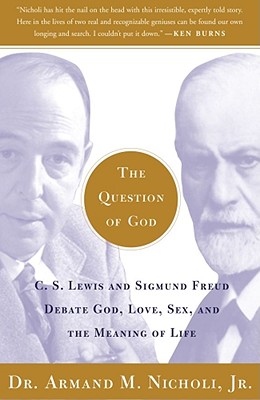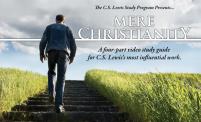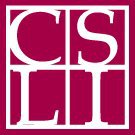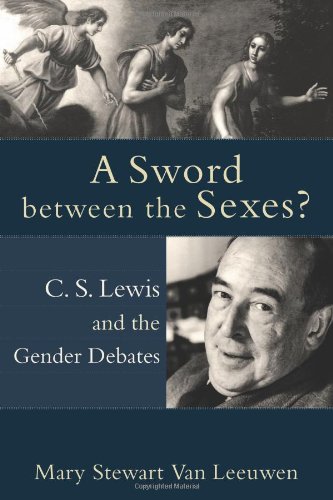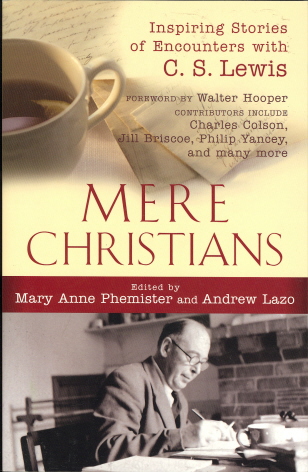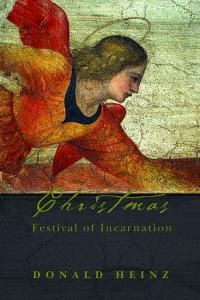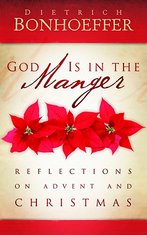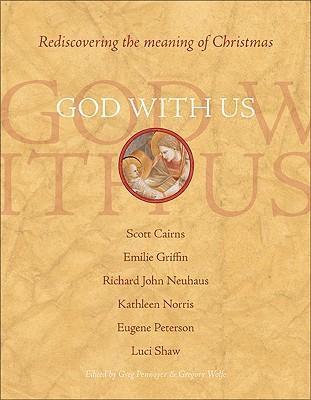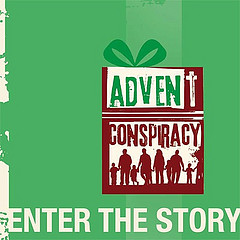Allow me to be candid. This best of the year thing is tricky. I want
you to enjoy my celebrations and accolades, so the column is hopefully
somewhat amusing and informative. I do want to be sincere, naming books
that truly deserve honorable mention and that we deem to be important
for our audience. Late as I am, I know what other lists have touted and
I’m tempted to just mimic those who are smarter than I. Yet, I usually
offer awards for books that we have carried and that I have read, not
necessarily the best the world has to offer, but the best we’ve been
pleased to review and sell. So, for instance, I know that Freedom
by Jonathan Franzen is one of the best novels of the year—my wife
couldn’t put it down—but I haven’t gotten to it yet. (I did love the
weird and wondrous The Corrections.) So I can’t really list his
new one, since I haven’t read it, even though I sort of feel like I
should; lots of people I respect have said so and I think serious folks
might think ill of us if we ignore it. Add to my quandary that we are
not primarily a book review journal but a bookstore, and we want to
convince at least a few folks out there to buy a couple of these, so we
have a view to what you, dear reader, friend and followers of the Hearts
& Minds tribe, will find stimulating. Which is just a long way of
saying I don’t quite know what I’m doing, and offer these with the
proverbial grain of salt, and occasional tongue in cheek. So, without
further ado, let the salty cheekiness begin.
BEST BOOK OF THE YEAR
Okay,
we ain’t the Academy Awards here, so I won’t make you wait for the
final five minutes of a drawn-out show to get to the biggee. Let’s get
this out of the way. I’ve pondered. I’ve prayed. I’ve read and
re-read. It’s a tough call, especially given, well, the toughness of
the call. So I’m taking the cheap way out. I’m announcing an
unprecedented four-way tie.
Bonhoeffer: Pastor, Martyr, Prophet, Spy
Eric Metaxas (Thomas Nelson) $29.99 I’ve been taken by this book since
before it got published; the author’s first publisher dismissed it as
too lengthy. The usually sane and amiable Metaxas held his ground, a
new publisher was found, and it was released in all its verbose glory. I
think I’d take maybe two sentences out, but this is a hugely important,
remarkably interesting, exceptionally inspiring work. It deserves
awards for making an important contribution to the complex field of
Bonhoeffer studies (reframing the Lutheran martyr as a solid and
orthodox Trinitarian evangelical as opposed to the Christ-less
universalists some gatekeepers in the Bonhoeffer study guild have
claimed.) And, he has brought the history of the theological and
spiritually-based resistance of Nazism to the forefront of especially
the evangelical community, who have promoted this book significantly.
At the end of the broadest evaluation of this books insights and
historical value and important impact, it must be said, though, that it
is a rip-roaring good read, told well, in accessible, clear prose.
Truly one of the best religious books of recent years, and one of the
most valuable of 2010.
The Spirit of Food: 34 Writers on Feasting and Fasting Towards God
Leslie Leyland Fields (Wipf & Stock) $30.00 I wasn’t kidding when I
said in my previous review of this that there are a few chapters in
here that are amongst the finest prose I have read, ever. I have read
and read again Denise Frame Harlan’s fine memoiristic reflection, asking
if I like it so only because I know here,and know some of the people
she writes about. (Yes, it was political thinker Jim Skillen who cried
while reading the passage in Robert Farrar Capon’s Supper of the Lamb
that so effected Ms Harlan. Yes, he was doing a staff training time for
the CCO.) I admit to my bias, but her writing and her story is simply
stunning, as are many others. It is my conviction that Ms Fields has
pulled together some of the finest contemporary writers who are justly
famous for the notable skills at wordsmithing—like the aforementioned
Capon, Wendell Berry, Lauren Winner or Alexander Schmemman—and newer,
perhaps up-coming authors, chefs, theologians, novelists, activists. Ms
Fields own lovely piece about farm life (that has been published at
TheHighCallings blog) is itself a wonder, a true wonder. Not only is
this varied writing consistently high quality, the insight and
perspective is sometimes nothing short of brilliant. And the topic is
spot on, with the recent interests in the spirituality of the ordinary,
concerns about nutrition, food justice, and the daily rituals of
preparing and eating God’s good gifts of food. And did I mention there
are recipes? I don’t care for the cover, and it is a shame that a
paperback is priced as it is, but this should not stop you from owning
this tremendous, wondrous, anthology. You can read it again and again,
share pieces, use it to remind you of the goodness of God’s world, the
ways in which we can see life anew, and how to more closely pay
attention to the stuff that matters most. And it may remind you, too, to
pick up a copy of Supper of the Lamb, which would surely please the authors herein. I gently tap my silver against my goblet: cheers to one and all.
To Change the World: The Irony Tragedy, & Possibility of Christianity in the Late Modern World
James Davison Hunter (Oxford University Press) $27.95 If you’ve been
paying attention this summer, you may know that this sophisticated book
was discussed, loved and loathed, evaluated and debated in journals,
blogs, conferences and confabs and in many venues, reviewed in some of
the circles we most respect. In a notably gracious move, Andy Crouch,
who is dissed by Hunter in the book, reviewed it pretty favorably in Christianity Today.
Editors there then asked him to take off the gloves, and say what he
thought about Hunter’s critique of his Culture Making project. They
invited Charles Colson to likewise respond to Hunter’s criticisms of his
role in the rise of the Christian right. That dialogue–not exactly
unprecedented, but perhaps too rare–hints of the richness of this work
and is an indication that it is being taken seriously. The rave reviews
on the back from Charles Taylor (whose whopping A Secular Age
was a Very Important Work of recent years), Robert Bellah, and Nicholas
Wolterstorff of Yale might impress you. One may or may not fully agree
with Hunter’s interesting critiques of various efforts to transform
culture—he simply dismisses the Christian right, the Christian left,
the cultural engagement efforts of Catalyst and The Q events, not to
mention the neo-Anabaptist feistiness of Hauwerwas and the Radically
Orthodox. You may not buy his arguments about the sociology of how
change happens, the role of elites, ideas, institutions. And I’m still
unsure about the implications of the “faithful presence” approach he
outlines in the final portion. No matter; this is doubtlessly the most
important book of its kind in years, attracting sustained attention and
evoking very important conversations in many important places. Let us
move away from the politics of resentment and victimization, reform our
capitulation to the spirit and styles of late modern times, and find
fruitful, lasting ways to be effective in our call to be salt and
light. This book will help. Pastors, leaders, writers, and anyone
interested about the public witness of God’s people should grapple with
this astute, serious work.
What Good Is God? In Search of a Faith That Matters
Philip Yancey (FaithWords) $23.99 Line-for-line, Yancey is one of the
most important writers of our day, bar none. I think he is vastly
under-rated, although he is esteemed, in theory. I am not sure folks
have purchased this book in our circles in the way they should have, and
I am honoring it now not just to get sales going again—although I
sincerely pray that this happens—but because I simply cannot get the
sentences and pictures and stories out of my mind. How many authors
carry rave reviews from Billy Graham (he doesn’t blurb anybody else that
I know of) and edgy bohemian, Anne Lamott, who says “I love Yancey’s
work. He is a brilliant, graceful writer.” 

Yes, Yancey is a graceful
writer. He works hard at his craft, and puts together sentences with
an economy and care that few journalists can match. I hope he gets some
huge life-time achievement award some day, because he deserves it.
This book is a spectacular collection of two essays, each set in one of
ten places. He travels to ten hard places and writes about what
difference God makes in those places. This is why he travels, why he
covers the hard stuff, why he writes: to determine if it matters.
Here,
he tells us some of the most unsettling stuff he has ever written
about. From sex workers to campus massacre at Virginia Tech, he enters
as a caring observer, learns the stories from the ground up, and reports
back from the field just what he sees. And what he sees is good news,
good news among the rubble, among the pain, poignant and deep and real.
From China to South Africa, from Mumbai to Memphis, he tells of what
God is doing, without being glib, sensational or overbearing. A few of
these stories are a bit more gripping and raw than others; his story of
his old church in urban Chicago–“a place for misfits”—is upbeat and
inspiring. He visits the Inklings hang-outs at Oxford and makes a very
good case on the true and lasting significance of Lewis, a apostle to
the skeptics. His two chapters on his old legalistic Bible college are
fair and honest and fascinating. Some will criticize him for being
critical; he gets letters from all over the world, though, thanking him
for naming the toxic faith that emerged in those years at those kind of
places. And yet, even here, he is a writer of good grace.
This
is not a random collection of miscellaneous pieces (although if it
were, it would still be award-winning, as a best greatest hits album!)
No, these ten stops along his way, where he tells the “story behind the
story” each contribute another piece to the puzzle, an insight gathered,
another remarkable testimony about his biggest question: does God
matter? Read this for the good writing. Read this to learn about the
amazing grace he finds. Read this to shore up your own doubts and
fears. Give this to others who need to hear the news, first hand
accounts, of a God who is there. Yancey always deserves our gratitude
for being a writer of integrity and class. Here, he has given us a book
that will last, accounts of faith that makes a difference.
BEST BOOKS ABOUT THE ARTS
Again,
a tie. We have a handful that we’ve enjoyed, and we are glad that
Christian publishers do this kind of work. These are the two we want to
list.
For the Beauty of the Church: Casting a Vision for the Arts
Edited by W. David O. Taylor (Baker) $14.99 From the forward by poet
Luci Shaw to the final chapter (“My Hopes and Prayer” by Taylor himself)
this is a truly splendid collection. The pieces are relatively short,
not overly demanding, yet thoughtful and rich and varied. Makoto
Fujimura notes that it is “pragmatic and theologically astute at the
same time” and he is correct. There is foundational, thoughtful, and
inspiring theology and perspective here, and there are practical pieces,
clear-headed proposals and positive suggestions. It is encouraging, if
honest, and a wonderful example of how a wide variety of authors can
contribute to a single, over-arching vision. Unlike, say, our very
favorite anthology of this sort, edited by Ned Bustard, It was Good: Making Art for the Glory of God (Square
Halo Press), this collection is not necessarily by and for artists.
Here we have John Witvliet on worship, Lauren Winner teaching us about
art patronage, Eugene Peterson on the role of the pastor to encourage
artists. (If you are an artist whose pastor does not encourage you,
perhaps you could give this to him or her. Or, read this chapter for
yourself, allowing Peterson to mentor you through his good words.)
Barbara Nicolosi, a fabulous Roman Catholic leader in the film industry
offers an insightful chapter about the inclinations of the artistic
types (and how to shepherd them.) There is a chapter for practitioners
and a wise essay on the dangers of art-making in the local church.
Jeremy Begbie’s last chapter is a call for further scholarship and
practice, offering good hope for the recent renaissance in Christians
working in the arts.
Of course it has long been our position
that artists—-like bankers or teachers or counselors or
engineers—don’t have to do their work in the church, or in service of
the gathered community in worship. Yet, there can be a vibrant
relationship between artists and the local church, and this book has
catapulted that conversation a light year ahead in the right direction.
What a fun array of authors, an excellent array of ideas, a good array
of suggestions. Get this book, give it away, keep the conversation
going.
Saving Leonardo: A Call To Resist the Secular Assault on Mind, Morals, and Meaning
Nancy Pearcy (B&H) $26.99 I have reviewed this a great length at
BookNotes, and I hinted that I am a tiny bit unsure about Ms Pearcy’s
interpretation of some particular cultural artifacts. I’m not even sure
she is fully correct about her sweeping evaluation about the history of
ideas, let alone the way worldviews have crept in to popular mindset
via specific art pieces. I didn’t say it, but the reactionary
subtitle, and the occasionally alarmist rhetoric gives some balanced
readers pause. (See Alissa Wilkinson’s very fair critique in Comment.)
Yet, despite these concerns, it is a indication of the strength of this
book that despite any controversy it engenders and any weaknesses it
carries, it deserves to be considered one of the best–and most
informative and interesting–books of recent years. Pearcy has done us
all a very great service by again exposing the false dualisms of
contemporary culture, what Francis Schaeffer termed the dichotomy
between the “upper story” and “lower story” or of what philosophers like
Polanyi describe as an unhelpful epistemological split between facts
and values. Sound complicated? That is exactly why we are eager to
honor this book with an award: it navigates complicated streams of
thoughts—most vitally from the Romantic era—in clear and provocative
ways. Whether you have a passing awareness of philosophy or not, or
care about art history much, you simply have to think a bit about the
way ideas of trickled down, from 18th century painters to 20th century
film-makers, to our postmodern 21st century computer games and graphic
novels and TV shows. Love it or argue with it, a good book will teach
you something, make you think, draw you to deep matters that matter, and
allow you to have some pleasure in doing so. From the full color art,
the clear writing, and the provocative thesis, this is a book deserving
of your attention. Kudos to the Baptist publishers Broadman for daring
to publish what some might find arcane. I hope it sells widely and is
discussed seriously.
BEST BOOKS ABOUT POLITICAL-SOCIAL ENGAGEMENT
Uncommon Decency: Christian Civility in an Uncivil World
Richard Mouw (IVP) $16.00 I have celebrated this book years ago, when
it was out in an earlier version. This re-packaged and slightly
expanded edition is to be more than applauded, it is to be honored—in
the deepest sense of the word. I honor this because it is honorable.
It is fair. It is kind. It is principled. It is honest. It is fun
and flavorful, interesting and intrepid. It is right and it is
necessary. Please, please, please. Get this book, spread the word,
pass it on. Learn from this wise, cautious, passionate thinker about
being true to one’s convictions, even as one pays attention to public
etiquette and civil discourse. Whether you have concerns about conflict
in your local congregation, ugliness in your community or workplace, or
are weighted down by the harsh impasse we find in our national
discourse, this book can help. Thanks to Mouw for re-thinking this,
thanks to IVP for re-issuing it.
Christian America and the Kingdom of God
Richard Hughes (Illinois University Press) $29.95 This has a 2009
copyright date, but I believe it was released so close to the tail end
of last year that it really is–for all practical purposes (or, at least
for my practical purposes)–a 2010 title. Maybe I’m cheating a little,
but I want to honor this as a stand-out title this year on the curious
question of how American exceptionalism developed and is maintained by
inappropriate confusion about God’s work in the world. This certainly
is a more urgent question now then it was when the good professor
starting writing this a few years ago. There are blurbs here from thee
always thoughtful and prudent Mark Noll, from the esteemed Martin
Marty,and from the late Howard Zinn (perhaps the last book the activist
historian endorsed.) Noll is correct, I think, when he says this is
trenchant; as he says 
”Those who think that the United States is
distinctly Christian nation and those who are sure it is not will both
read this book with great profit.” “Few have written on this topic with
as much intelligence and authority as he” says one reviewer. That
deserves a shout out from the Hearts & Minds awards bench. Yay.
Global Warming and the Risen Lord: Christian Discipleship and Climate Change
Jim Ball (Evangelical Environmental Network) $25.00 We are grateful
that in recent years there have been an outpouring of fine, Christian
scholarship—Biblical, theological, and scientific—about creation
care and stewardship of God’s world. Some are very, very good. With
the horrors in the Gulf this year, and the ongoing debates about climate
change (and the publication of Eaarth by Bill McKibben last year) the need for such resources remains stronger than ever. How to pick out one for a special award?
Well, I am happy to announce that GWaRC
deserves honor for several reasons, with layers of merit and
notability. Firstly, it is well written, by a first-class Christian
leader; Rev. Dr. Jim Ball has been at this a long time and we have
admired him for decades in his faithful, progressive leadership among
evangelicals, especially. He is creative, well informed, energetic, and
full of God’s good vision of hope. He has studied this topic for
decades, used to work for the Union of Concerned Scientists, has been
interviewed or listed as a viable leader in places such as Time, Newsweek, ABC’s Good Morning America and even Rolling Stone,
and has testified before the U.S. Senate. And he is always clear about
this faith. (As an aside, mainline denominational publishers have,
true to form, also published serious contributions to the on-going
theological conversation about creation, ethics and sustainability. I
have found them, almost without fail, to be theologically bizarre,
obscure, scholastic, over-priced and largely useless in the serious
struggle to mobilize church folks to become active in efforts at
lifestyle and policy change of our deadly industrial culture. Kudos to
guys like Ball who speak plainly, faithfully, with orthodox doctrine and
vibrant piety.) Global Warming and the Risen Lord has a
handsome design on the inside with some striking b/w photographs and a
couple of other lovely graphic touches. The endorsements from a wide
array of esteemed church and world leaders illustrate the book’s
credibility—from N.T. Wright in England to Gordon MacDonald in New
England, from Sir John Houghton (a former Chair of an Intergovernmental
Scientific Panel) to Larry Schweiger the President and CEO of the
National Wildlife Foundation.
I like the quote from Ron Sider,
who notes that “Jim’s book displays his passion for protecting the poor
and vulnerable and provides a clarion call for Christians to do so by
walking faithfully with the Risen Lord as He leads the way in overcoming
global warming.” And that is yet another beautiful and innovative
contribution to this Biblically-based spirituality of creation-care: it
emphasizes the risen Christ! If Jesus has indeed risen from the dead,
and reigns, then this truth has huge and important implications for the
way in which we work on this issue. Three green cheers for this
important book (and the way Russell Media helped get it printed in an
environmentally sound manner, partnering with “Plant with a Purpose.”)
Local pal, United Methodist clergyman (and former coal industry man)
Mitch Hescox, President of the EEN, has a nice afterward.
BEST BOOKS ABOUT MISSIONS
Living Mission: The Vision and Voices of New Friars
edited by Scott Bessenecker (IVP) $16.00 A few years ago Bessenecker
did a powerful book documenting young missionaries and social activists
who have aligned themselves with the poorest of the poor, from the slums
of Manilla to the refugee camps of Sudan to the barrios of Brazil.
These are relief workers, church planters, wandering servants,
evangelicals shaped by the ethos of Francis, all described in gruesome
glory in a book called The New Friars. In this new one,
Bessenecker invites a number of these thoughtful, engaged, and now
significantly experienced servants of the poor to describe the essential
tenants of their view of mission. From elder, long-term urban
missionaries like Viv Grig to world-travelled folk like Christopher and
Phileena Heuertz (Word Made Flesh), this collection is powerful,
inspiring, challenging, and very important. What a strong bit of hefty
wisdom! What an indication of the emerging tone in missiology.
Spectacular. Thank goodness for folks like this, doing this work. And
thanks for publishers like IVP who have the guts to so gracefully
describe it.

Friends at the Margins: Discovering Mutuality in Service and Mission
Chris Heuertz and Christine Pohl (IVP) $15.00 This is the fourth in
this absolutely fabulous “Resources for Reconciliation” series, an
on-going set of books coming from the Duke Divinity School Center on
Reconciliation. Each book pairs a scholar with an activist, and brings
us extraordinary insight and powerful stories, designed for good reading
and good conversation. This one is like no other book we know,
seriously linking themes of hospitality to how we become friends with
those whom we serve. Pohl, you may know, nearly “wrote the book” on
hospitality, by writing the book Making Room. Christ Heuertz is one of
the aforementioned New Friars and is as worldly wise about the poorest
of the poor, and what it means to do justice and mercy in these
settings, than anyone writing books today. Together, they have given
us an unprecedented book.
Nearly everyone going on short term
mission trips struggles to avoid patronizing or “helping” others in
demeaning ways, and this small book takes that struggle to a new level,
offering theological resources and fresh ideas for developing attitudes
and practices of authentic mutuality. Anyone who supports missionaries,
anybody who cares about service in the world, and certainly anyone who
who participates in work projects or short-term mission trips really
should get this book. We give it an enthusiastic award, with very deep
appreciation.


BEST MEMOIRS
Oh
my, we love this genre. There are several that I have re-read this
year, and I’ve been struck by their influence in my literary tastes.
Still, there are new ones, and it is hard to award just one. Here are a
few we consider our favorites.
I Want to Be Left Behind: Finding Rapture Here on Earth
Brenda Peterson (DeCapo) $25.00 I told everybody about this as I was
reading it as it was one of those wonderfully written and truly
remarkable stories that drew me in and stuck with me for months. The
story is well told, and I grew to love writer (indeed, I’ve now explored
other non-fiction nature writing she has done.) This memoir is, to say
it more simply than it deserves, is about the author growing up in the
70s as the child of a National Parks Service outdoorsman, learning from
her beloved dad more about nature than most of us will ever know. Her
passion of animals and earth and sky soon came to be in conflict with
the Southern Baptist fundamentalism of her rapture-oriented parents.
How they held together the goodness of God’s world and His presence
around us and their conviction that Christ would burn it all up as they
flew to an invisible far-away heaven is beyond me, but they did.
Science, good cooking, animals, an abiding joy in the beauty of
landscape was part of their family values and yet Brenda was severely
scolded for asking if she’d see her dog in heaven. This story is her
account of her drift from faith, her ongoing theological reflection, her
environmental activism.
Near the end of this aching story she
says she discovers N.T. Wright, whose theology affirms the goodness of
creation and insists that the bodily resurrection of Christ portends the
restoration of the whole cosmos. She wonders if she heard this twenty
years earlier if it would have saved her faith. One wonders. One also
has to wonder why a writer as smart as Peterson couldn’t figure some of
this out on her own; surely there were robust evangelical voices of
peace and justice that she could have discovered. If only…still, for a
beautifully rendered faith journey, and a fantastic window into
conservative religion of late baby boomers, this is one heck of a book.
One of my “can’t put down” awards goes to this, for sure.
The Grace of Silence: A Memoir
Michele Norris (Pantheon) $24.95 A few years ago NPR called our
bookstore, with the calling saying she was calling on behalf of Michele
Norris. Had I heard of her, she wondered. Had I heard of her? Were
they kidding me? Norris had somehow heard of our work in York PA a few
years previous pulling together an ethnically and politically and
religiously diverse group to work for the rights of detained Chinese
immigrants, and wondered if we could help set up some candid
conversations around race in a typical mid-American town. She says in
the preface of this riveting book that the subsequent NPR story (maybe
you heard it) recorded in York got her to thinking about her own
racially complex past. Granted, she is a nationally esteemed
journalist, but the elegant recommendations on the back cover—from
luminaries such as historian Doris Kearns Goodwin, Henry Louis Gates,
Tom Brokaw, Dave Isay of StoryCorps—all speak of this books remarkable
power of a “painful yet triumphant journey of self-discovery” for this
one unique American family.
Pulitzer Prize-winning historian
Goodwin writes that “History at its best is storytelling…in the hands
of a gifted storyteller, a memoir becomes more than a chronicle of the
writer’s life. It becomes the history of a time and place. So it is
with this magnificent memoir—one of the most eloquent, moving, and
insightful memoirs I have ever read.” Given our tiny, tiny, tiny bit of
influence on this, we simply have to give it a large shout out. It
deserves real awards and perhaps it will itself be nominated for
something like the American Book Award or a Pulitzer. For now, she gets
it from us. Kudos!
Wild Comfort: The Solace of Nature
Kathleen Kean Moore (Trumpeter) $15.95 I am sad this splendid, lovely,
smart, nature writer’s other books—among my all time favorites!—are
out of print. I will hope they are reissued. This new one, again,
made me literally tremble at certain pages, and while this seems a bit
more demanding then her other glowing reportage, this is surely one of
the best books of its broad genre. Interestingly, the theme of this is
how being present to the grandeur of nature can, in fact, help us grieve
well. There is not as much direct stuff about grief and loss as one
might expect (although the author shares great sadness in the preface,
explaining the build-up of losses she faced in the run-up to writing
these pieces.) She is, literally, an outdoors-woman and although she is
also a philosophy professor, her specialty is the lived experience of
being with nature. Scott Russell Sanders says, as I cited when I first
reviewed this, “This book itself is such a consoling creation a cause
for gratitude and joy.” I agree.
Lit: A Memoir Mary Karr (Harper) $14.99 Can we just out and out cheat here? Call it the best 2010 memoir in paperback or something: it came out last year, and Beth and I both oddly waited until this year to devour it. Her previous two—Liars Club and Cherry–are
considered among the finest of 20th century memoir and were books that
showed us how to tell a hard-scrabble story of brokenness and
dysfunction and still keep us laughing, with jaw-dropping prose,
recalling a life through a writer’s artful lense.
Now, in Lit,
with a fantastic play on the word, literature prof Karr turns into the
addict she most feared she would become, marries, reunites with her
crazy Texan mother, and–get this–becomes a Christian as she is
sponsored into the Catholic church by a famous literary figure as she
continues to grow as a famous writer… I think we may have given a
shout out to this last year, but now that it is here in paperback, and
Beth and I have both read every page, we can’t say enough about its
captivating prose, the remarkable life it describes, and how, again,
Mary Karr shows us how to do this thing called literary memoir. One of
the most awarded books of last year, and we are happy to fully agree.
BEST INTELLECTUAL BIOGRAPHY
Hope In Scattered Times: A Life of Christopher Lasch
Eric Miller (Eerdmans) $32.00 I almost listed this as one of my
personal favorite books of the year, and it certainly is one of the most
amazing books in any category. I am aware that it is not for everyone
but it is truly extraordinary, about a very important scholar and
writer. There is no other serious biography of the great public
intellectual, Christopher Lasch, and Dr. Miller of Geneva College has
served us well with this wonderfully-written, exceedingly fascinating
account of the intellectual journey of one of the great minds of the
later half of the 20th century. Here is some of what I wrote about it
in a review I did in Comment, on-line journal.
…readers
appreciate serious social criticism and Christopher Lasch was one of
the most important and insightful prophets of our time; his Culture of Narcissism, Haven in a Heartless World, and True and Only Heaven: Progress and Its Critics
are modern classics of serious intellectual social history. Indeed,
this thrilling biography follows Lasch’s journey from a U.S. family
steeped in liberal and progressive politics, through his time as a
student in 1950s Harvard and on to being a “public intellectual” during
the Cold War, and his break with the ideological failings of liberalism,
embracing something quite other than old-school conservatism. Although
his intellect was formidable, his relationships with an impressive array
of friends were equally remarkable. (He was, for instance, novelist
John Updike’s roommate in college, was mentored or influenced by some of
the great American scholars of the 20th century—Mills, Niebuhr,
Schlessinger, Kennen, Hofstadter—and in the conservative revolution of
the 80s was in the thick of conversations with everyone from Jacques
Ellul to Robert Bellah to Jean Bethke Elshtain. One of the best books
of any year that shows the story of a thinker’s life, his movement away
from secular theories, and his effort to embrace a new tradition of
doing social criticism with a view to sustainable hope. The book title,
by the way, is a line from Auden.
BEST BOOKS OF CURRENT AFFAIRS
American Grace: How Religion Divides and Unites Us
Robert D. Putnam & David E. Campbell (Simon & Schuster) $30.00
This is big and fat and has some graphs, so I’m afraid it isn’t going to
be a best-seller here. Yet, the book is garnering critical review, it
is climbing up the best-seller charts, as the authors have been vetted
in important venues. The back jack endorsements are stunning, with
amazing raves from Cornel West, Doris Kearns Goodwin, Rev. Theodore
Hesburgh, Rabbi Eric Yoffie (who says,”This is the best overview of
American religion in the last half century I have ever read. If you
care about American religion, you must read this book.”) Another
reviewer wrote that it is “an instant canonical text…indispensable.”
How about this, from Alan Dershowitz, “This remarkable book does to
religion what the Kinsey Report did to sex: document, dissect, and
assess…whether you are a fundamentalist or an atheist (or anything in
between) this book matters.”
It’s no wonder it is getting acclaim, first from the reputation of Putnam: Bowling Alone
was an immensely helpful, and very, very interesting contribution to
understanding voluntary associations in our time, and how groups—from
bowling leagues to the PTO to the local Methodist church—are
decreasing in their role in people’s lives. It was one of the great
books of the last decade, and we were early promoters. Here, now, the
master sociologists turn their eyes to this very big issue of the day,
how religion functions in our culture, how it does or doesn’t divide us,
and how we can think about faith in a pluralistic culture. They’ve
been working on this for years, and given the harsh zeitgeist on these
things, it hasn’t come a moment too soon. I will admit to not having
read all of this. I am not sure if all of his proposals are as helpful
or fruitful as we may need. No matter. This is a key book, important,
vibrant, serious, and to be commended. We wanted to tout it, applauding
the seriousness, the perspective, the writing, and the topic. Kudos to
one and all involved.
Bye-Bye Miss American Empire:
Neighborhood Patriots, Backcountry Rebels, and their Underdog Crusade to
Redraw America’s Political Map Bill Kauffman (Chelsea Green)
$17.95 Well, this is going to be a hard-sell, having you honor our
awarding this for anything more than the season’s longest subtitle. And
I’m not even sure how to explain the darn thing. A lot of this is
history, all of it shaped by author’s quirky passion for localism,
decentralization, and “front-porch anarchism.” (Not to mention his
penchant for word-play, song allusions, and overall clever wittiness.
His friend James Howard Kunstler says he writes with an “antic verve”
which puts it mildly.) I’ve said before that I will read anything this
guy writes, and find his crotchety, wacky, long-winded sentences to
thrill my mind and fill my heart. That is, he is on to something,
giving voice to a third way that is so far left, it is right (or so far
right, it is left.) Or, better, he’s something then again, not
concerning himself with being left or right. He seems even beyond
communitarianism or libertarianism to a small-is-beautiful patriotic
pacifism. Remember the 18th-century debate between the Federalists and
the Jeffersonians? Bigger centralized government vs smaller local
folk? Kauffman is way (way) on the side of the little guys. An earlier
book of his which I couldn’t put down carried the torch of some
outspoken prophets of the colonial era —especially one from Maryland
named Luther Martin—who were against the ratification of the
Constitution; they were in favor of the Articles of the Confederation,
not wanting to give the Feds too much power. Tell that to the
Christian right these days that some early founders opposed the
Constitution! I Samuel 8 isn’t my favorite verse in the Bible for
determining wise statecraft, but Kauffman gets it, and without the lingo
of subsidiarity (Roman Catholic) or sphere sovereignty
(Kuyperian/Calvinist) he sees to invoke the spirit of Wendell Berry and
Dorothy Day and the aforementioned Thomas Jefferson and Luther Martin
and wants everybody to do as they please in their own backyard, free
from the colonization of unneighborly Empires.
This, then,
leads him to the topic of this can’t-put-down travelogue through the
most fascinating counter-culture I’ve found in a long time. He’s
reporting on his journeys to the various conventions, movements and
efforts of those who want to secede from the Union. I’m telling you,
this is one rock-n-roll road trip and he reports, argues with, argues
for, and tells us about the history of folk who don’t want to be
homogenized by Uncle Sam and Wal-Mart. The story of secession—from
populists in West Kansas to the indigenous Lakota people—is much more
interesting (and reasonable and plausible) than the scowling history
books and mainstream media wants us to believe. Kauffman is our man to
make it plain. And, as one reviewer said, make it “intensely
enjoyable.” And Bye-Bye was certainly that for me.
From
those wanting independence for Hawaii to those who think that New York
or California ought to each break into two states, from the
neo-Confederates (some who are black, by the way) of the deep south to
the freedom lovers of crunchy Vermont, from the First Nations peoples of
the contiguous states to the Alaskan Inuits, each group makes a strong
case for being left alone and argues the justice of their call for
freedom. Why should Washington DC determine laws for people in the
Middle of the Pacific? Why, for that matter, should people in Manhattan
care one whit what local zoning rules are in, say, Kauffman’s beloved
small home-town of Batavia NY? (He tells the story of his leaving
big-time Beltway politics and returning home to fight Wal-Mart and coach
a Little League team in the endearing Muckdog Gazette.) It will
be hard to take, but Abe Lincoln is not a hero in this telling of the
tale, and although Kauffman is a sentimental patriot (he’d rather sew
another star on the flag than take one off) he thinks people, especially
those bound by local traditions, faiths, and cultures, have the right
of self-determination. Cheers for Tunisian independence? How about
Texas? What is sacred about the Union, except the mythology of the
importance of Lincoln keeping us together? This is one heckuva book,
rollicking, wild, funny, and very, very informative, about people,
beliefs and movements I have rarely considered. It deserves a couple of
awards, but I don’t know in quite what. Trouble-making? Iconoclasm?
Common sense? Crazy-long sentences? A cool title? Yep. All that and
more. He’s a great writer, and amazingly aware historian, and a deep
down good, good guy.
The Flight of the Intellectuals
Paul Berman (Melville House) $26.00 I am not sure of what to make of
the large implications of this serious work, but it is fascinating for
several reasons, and deserves a significant honor. Firstly, it is
eloquent and mature writing, intellectual argument at its finest. It is
demanding reading, sophisticated and informed. Secondly, it is
commendable because Berman is, as he did in his very urgent Terror and Liberalism,
breaking down historic categories and caricatures. (That is, in that
book, he argued that the lef’t commitment to liberal values ought to
cause them to support the war on terror.) Here, again, he calls on the
liberal intellectual class and the thought leaders of the left—think The New York Review of Books or The New Republic—
to reconsider their naive capitulation to the ideas of the radical
Islamists. One of his important case studies is the reception among
scholars and liberal leaders of Muslim spokesperson and Oxford
professor, Tariq Ramadan. Years ago, intellectuals condemned the fatwa
against Salman Rushdie. Today, Ayatollah’s the world over issue such
calls to assassinate moderates, or execute those who speak out for
justice, and the liberal class is silent.
Why have liberal
intellectuals in the West largely “flown” from their duty to be voices
of freedom and human rights? How can we discuss the threats of some
very dangerous ideas in our polarizing culture? Gripping, important,
and exceptionally thoughtful work by a leading contemporary essayist.
Those of us who strive to be Christian pacifists may not agree, and
Berman himself desires not to be seen as bellicose. This deserves to be
seriously considered and we think we should honor it as one of the most
significant books of 2010.
BEST SCIENCE BOOKS
Darwin’s Pious Idea: Why The Ultra-Darwinists and Creationists Both Get It Wrong
Conor Cunningham (Eerdmans) $34.99 At over 500 pages, this is a slow,
tough read. It is by a world-renowned British philosopher and carries
weighty endorsements by some of the leading intellectuals the world
over. (Charles Taylor, Louis Dupre, John Haught, Slavoj Zizek. Slavoj
Zizek??) I must admit that I am not the best judge of these things, but
I’ve read a handful of science books this year, am still drawn to the
intelligent design authors in ways that many of my friends find
perplexing, and this really does seem to be of a calibre unlike anything
I’ve seen lately. I am not alone in stating that this is an obvious
masterwork, a work that may endure as a classic contribution, and an
important study of not only science, but of the Biblical notion of
creation and its mature import for the doing of the philosophy of
science. As Stanley Hauerwas observes, “Writing with engaging humor
that betrays an extraordinary energetic intelligence, Cunningham shows
us why, given the Christian God, an evolutionary account of life is
necessary. This theological account of creation will become a classic.”
A Fine-Tuned Universe: The Question for God in Science and Theology
Alister McGrath (WJK) $39.95 I’m going out on a limb here, but not a
very thin one. I’ve not read this, but the evidence is sturdy. This is
a masterpiece and truly a notable book in these days. This is an
expanded version of Dr. McGrath’s Gifford Lectures of 2009 and to have
them released in 2010 is a scholarly gift to the world. You may know
the prestigious reputation of the Giffords, one of the most closely
watched and important lecture series in the world, having been annually
delivered for over 100 years. Given at the University of Aberdeen, they
usually are related to issues of natural theology, faith and the
sciences or a theological perspective on our scientific culture and some
of the most prominent theological minds of the 20th century have
lectured there. This dense book, considerably expanded, stands in a
grand tradition. With endorsements by scientists Philip Clayton,
Francis Collins, and John Polkinghorne, this remarkable, prolific,
evangelical thinker, with PhDs in both science and theology, is surely
well deserving of our simple honor. Surely one of the important books
of the year.
BEST REFLECTION ON POP CULTURE
The Day Metallica Came to Church: Searching for the Everywhere God in Everything
John Van Sloten (Square Inch) $14.99 I suppose I was first captured by
the cool cover and the hand-sized package with deckled pages and the
oh-so-clever title. Even more, the “square inch” of this publishing
imprint is an allusion to the famous phrase in a speech by Dutch
statesman Abraham Kuyper, who insisted that Christ claims as his own
“every square inch” of creation, demanding a uniquely Christian
perspective on our thinking about everything. But it was the wisdom of
the chapters that turned this into a useful resource and into an award
winning keeper of a book; this is glowing, fine, amazingly fun reportage
of finding God in all manner of places. From the movie Crash to
the stories of Batman, from Metallica to Bach, Van Gogh to the local
soccer game, God is to be found, at loose in the world, helping people
discern meaning and goodness and grace. From Ray Charles to Joel &
Ethan Coen, Van Sloten takes it all in, and offers back helpful
reflections and thoughtful meditations, often informed by eloquent
religious writers of the likes of Frederick Buechner, Madeline L’Engle
or George MacDonald. It isn’t every book, by the way, that has blurbs
on the back by Leonard Sweet and Shane Claiborne and Richard Mouw, but
all bring their voices to celebrate the Spirit at work in the world,
shown to us by the skilled eye and good writing of this Canadian pastor.
BEST BOOKS FOR PERSONAL GROWTH
About You: Fully Human Fully Alive
Dick Staub (Jossey Bass) $22.95 I suppose you know the quote from the
first century Christian leader that the glory of God is seen in a person
fully alive. In a book that artist Bruce Herman of Gordon College has
called “refreshingly honest” Staub ” doesn’t flinch at the reality of
our fallenness, but offers fresh insight into a profound mystery: Why
does God love us? What is wrong with the current picture of our lives?
How can it be painted more beautifully and truly to match the vision of
the Artist?” Indeed, artistic metaphors are helpful in this fine book,
but it is not mere metaphor. Staub truly knows that the best theology
based on the best reading of the Bible calls us to be truly alive in the
world. As it says on the front cover “Jesus Didn’t Come to Make Us
Christians; Jesus Came to Make Us Fully Human.” This is a lovely study
of salvation, humanness, cultural engagement, passion, desire, goodness,
and all that goes in to being people who understand that we are “made,
marred, and mended.” Staub is a fabulous storyteller, a respected
journalist, and an important leader in the post-fundamentalist recovery
of evangelicalism. That is, as his earlier book put it, he is now “too
pagan and too Christian” somehow in the middle (and loving every minute
of it!) Isn’t this a bit like Jesus–a bit too loose for the religious
types, but a bit too holy for the sinners? Yet he loved all and invites
us all–saints and sinners–to let go of dumb categories, gnostic
pieties, and be reborn into true life. I love this stuff. You should
too.
Squeezed: Springing Free from Skinny Jeans, Nose Jobs, Highlights and Stilettos
Margot Starbuck (IVP) $16.00 You may recall how we raved and raved a
year or so ago about this new writer we discovered, a funny and poignant
storyteller, whose search for a birth-father (and a Heavenly Father), a
journey through chronic pain and depression and into Christian ministry
just took our breath away. Girl in an Orange Dress remains a
moving and rewarding memoir and we are thrilled that the girl has given
us a new book. As a male, I suppose I didn’t get as much out of it as
more feminine readers, but I am proud to say as loudly as I can that
this was one of the best books of 2010. She covers “body image” and
cultural-criticism territory that some have written about before but
with a theological depth and savvy (and yet a light-hearted joy) that is
a rare blend. Her writing abilities are stellar, her insight
impressive, her passion contagious and, did I say she is funny? She is
funny. This is the kind of “Christian self-help book” that redeems the
phrase, and is a standard for the sorts of contemporary, practical,
insightful books that we need to see on the market. This is a
“no-brainer” and a truly award winning title. Yippee.
The Art of Dying: Living Fully to the Life to Come
Rob Moll (IVP) $16.00 Book lovers will know what I mean when I say
that there are certain books that become deeply meaningful, almost
sacred in their impact, in ways that one can hardly whisper about. I
have not reviewed this book on line yet, in part, because I don’t really
know how to sell it, what to say that will communicate what it is, how
well it is written, how vibrant and real and alive it is. Will ordinary
folks want to read a book about hospice care, about caregiving; can
interviews about end of life care be that inspiring? Can a book about
dying be beautiful? Of course. Do we all need such a book? Duh. There
have been rituals and practices in times gone by that helped us all
attend to “dying well” and there have been spiritual writings about “a
good death.” Why do we not now hear of this much? How can we recover
not a morbid sense of fear or sadness, but an awareness of Christian
consolation. It sounds like a cliche as I say it, but this book on
learning to die will help us learn to live. What an honorable book this
is. We happily list it as one of the best.
BEST NEW RESOURCES ABOUT C.S. LEWIS
Again,
I just have to announce a draw—there are such a goodly number of
important and interesting Lewisonia works, that I couldn’t name just
one. But two stand out for their quality, usefulness, and the way they
appealed to us. If I was at an old public house, I’d raise my pint and
say “hear, hear” or something like that in honorable mention of these
two—one a new and rare DVD, the other a lovely overview.
DVD The C.S. Lewis Study Program: Mere Christianity
Dr. Chris Mitchell (C.S Lewis Institute) $19.99 I cannot tell you how
many times we have been asked here at the shop for a resource to walk
readers through the logic and analogies and teachings of Lewis’ most
influential work, Mere Christianity. Here—fife and drum roll,
please—at long last, we have not only a good, but a truly exceptional
aid. This new DVD is a great, great release, and we are exuberant to
finally be able to make such a resource available. If you love Lewis,
you will know what I mean when I say this is precious, holy,
life-changing material And if you do not, but wonder what all the fuss
is about, this may be the perfect entry. Read my longer review of this
one-of-a-kind (and now, “award-winning”) four-part DVD resource to walk
you through the this important classic book, and learn more about it.
We are happy to stock it, eager to tell of it’s spiritual helpfulness,
insightful and professional tone, and truly award-winning style.
The Soul of C. S. Lewis: A Meditative Journey through Twenty-Six of His Best-Loved Writings
Wayne Martindale, Jerry Root, and Linda Washington (Tyndale) $19.99 As
I noted at the BookNotes blog earlier, this book could sell for twice
the price and be a bargain. Lovingly
edited and compiled, this really is, as the sub-title says, a sweet
reflection on all of Lewis’ major works. This is at once a “readers
guide” and guidebook, but also a thoughtful and at times captivating
rumination on the deepest meanings and insights of C. S. L. The reviews
are gathered into four major sections, and although they offer the dates
and chronology, they are arranged by theme, or tone. They show the
movement of his thought, following his journey of “Pilgrimage”,
“Temptation and Triumph”, “Going Deeper”, and,
then, the books that they describe as “Words of Grace.”
Lovers
of
Lewis will surely be thrilled to see these authors arrange and discuss
so caringly his impressive body of work. Those who need a friendly
sherpa or two to help you in the daunting journey, well,
you’ve found them. We are happy to honor this as one of the best.
BEST BOOKS OF BASIC CHRISTIAN GROWTH
The Dangerous Act of Loving Your Neighbor: Seeing Others Through the Eyes of Jesus
Mark Labberton (IVP) $20.00 From the first paragraph of this riveting
book, I new I had a true winner on my hands. Labberton wrote the
remarkable Dangerous Act of Worship and this, in a way, is a
natural sequel. How can we become people who love well? Why do some
people seem to gravitate to the poor and needy, to share love with the
unloved, the underdog? What is the root of apathy? Mark Labberton is a
PC(USA) pastor, and now preaching prof at Fuller Theological Seminary.
He uses his considerable communication skills to great effect in giving
us a fantastic study, the book—as Brenda Salter McNeil says, “that
I’ve been waiting for! It is practical and thought-provoking guide that
shows us how to cultivate lives of justice, mercy, and faith.” Alan
Hirsch, a passionate, missional writer himself, notes that it is
“eloquent and subversive.” Do you see people through the eyes of
Jesus? In even asking this, I realize I want to read this again, more
slowly this time. This is one of the great examples of why I am proud
to be a bookseller, an example of the fine, mature, ecumenical work that
is coming from our evangelical publishing houses these days. Award
winning, to be sure.
Letters to a Young Calvinist: An Invitation to the Reformed Tradition
James K.A. Smith (Baker) $14.99 Wait, wait, hear me out. This is the
awards show, you know, so even if you aren’t interested in this—even
if you are neither young nor Calvinist—I’m telling you, this is truly
one of the best books of the year! Don’t you dare change that channel.
I adored this little volume, and thinks it is wise, interesting,
good, and important. Jamie, as you may know, teaches philosophy at
Calvin College, and is interested in all sorts of fascinating stuff.
He’s a bit Pentecostal, he’s very postmodern, he’s very interested in
film and literature, he’s quite ecumenical and he’s politically, well,
not the Christian right. (He’s taken Jim Wallis to task, too, for—get
this–civil religion, in his collection of essays The Devil Reads Derrida.) So he’s an amazing writer, and on that short list of people you should read almost anything he does.
This
is a set of pastoral letters he has written to a young guy and gal
(composites, really, so this is fictional, I guess) helping them move
away from their rather boisterous convictions about old school
Calvinism. Jamie is a fine “five-point Calvinist” so he is not
betraying his tradition, but he is wisely counseling them to deepen
their ecumenical roots, to understand that there is more to the Reformed
tradition than arguments about predestination. You may know that the
mainstream media (Time, Newsweek, and places as diverse as the Chronicle of Higher Education and The New York Times, and The Christian Century and Christianity Today have all highlighted what some are calling the “new” young Calvinists, documented in the book by journalist Collen Hanson, Young, Reformed and Restless, sporting the popular “Jonathan Edwards Is My Homeboy tee- shirt on the cover.)
Letters to…
is an effort to shape the piety of this rising generation of
neo-Puritans into perhaps a “kinder gentler” Calvinism, and introducing
them to other strains, including Smith’s beloved Abraham Kuyper. Using
this time-honored device of personal letters of guideance, he explains a
variety of nuances, names several authors, invites his young friends to
understand Kuyper’s notions of common grace and cultural engagement,
and even points them to Reformed voices from the global south. (The
little postcards from Jamie’s international travels are genius, breaking
up the email style a bit.) Who knew that the debate about whether or
not debating TULIP could be so fruitful, and who knew that reading over
the shoulder of some receiving forthright pastoral guidance could be so
very helpful? This is a book I wish believers of all ages and stripes
would consider. It is sane, wise, nicely written, informative, and
solid. Dare I use the word edifying? Indeed. If you like anything
about what we write here, this is the sort of spirituality and
discipleship that keeps us going. We celebrate it, honor it, and hope
you do to.
Your Church Is Too Small: Why Unity in Christ’s Mission is Vital for the Future of the Church
John Armstrong (Zondervan) $19.99 This past year I took this book with
a misleading title around to church leadership events, telling everyone
I can that I think it is important (and pointing out the very clear and
properly urgent sub-title which really describes it best.) I’m
confident, however, that it is not just a book for church leaders;
developing a heart for a Biblically-based commitment to ecumenicity is a
primary calling for the ordinary Christian. So, we celebrate this,
honoring it with our feeble “ecumenical” award. It is a book we
believe in, and it tells an interesting story. Armstrong was once a
very strict and separatist Baptist, a gifted communicator with several
books, including some on publishers that do mostly Puritan theology. He
wasn’t really a very ecumenical fellow, it seems. Yet, his natural
good-natured personality and intellectual curiosity kept him reading
widely and relating to others outside his own circle.
This
recent book is partly John’s own story of growing into a heart-felt
ecumenicity and a Biblical and theological call to a rich, evangelical
view of the full Body of Christ. With a moving forward by Anglican J.
I. Packer, John has given us a large gift, born of his own pain and
struggles, friendships lost and friendship gained, as he explores the
meaning of the “missional church” in these postmodern times. Mainline
denominations have had a consistent, if thin, vision of ecumenical work,
so leaders and readers in mainline circles may not feel they need to
read a book like this—but they surely should, as it offers a very
helpful basis for thinking about church. As most mainline denominations
are in conflict, and evangelical churches look on with suspicion, we
all need a reminder of what we are called to be as Gods people, how we
can find solidarity beyond denominational boundaries, even amidst
tensions; it is understandable in hard times to focus on our own issues
and concerns.
Still, as Your Church Is Too Small
reminds us, too often, our view of the church is too small, too
parochial. We must rediscover and live into an active expression of
being a global and faithful Body of Christ, ambassadors for His reign of
shalom, witnessing to the reconciliation He has wrought. This book
proposes, with diligent Biblical exposition, that we can unite in
mission, and that co-operation is a must. This is an important part of
our own work here, and we are delighted to honor this as one of the key
books of 2010. It is a rare book on the church, on being ecumenical,
told by a recovering separatist (who is, by the way, on his way to meet
with the Vatican quite soon.) With blurbs by a Roman Catholic, an
Orthodox priest, and an evangelical on the back, this is a
ground-breaking book. It is rare I can say this, but there is nothing
like it in print! It is a book we all need. We’re happy to name it
one of the best and most unique books of 2010, not just for leaders or
denominational executives or those inclined towards pleasant theological
debate, but for every ordinary Christian.
Untamed: Reactivating a Missional Form of Discipleship
Alan & Deborah Hersh (Baker) $14.99 You may know that one of the
most popular religious publishing trends–a school of thought and
theological vision that has really taken off–is to think about
congregational life in terms of the broad duty to witness to God’s reign
in all of life, being a church “for the world.” They call this being
missional; not just sending out missionaries, but being a community that
thinks always about engagement, witness, service. The nuances and
implications of this are vast, and there have been more missional church
events and books than you can imagine (most of it very good, in our
view.) At last, somebody from the epicenter of that conversation has
applied the missional congregation theories to ordinary living, adopting
that passion and rhetoric and rubrics to daily, wholistic
discipleship. This is fantastic, a new way to be reminded of what it
means to be a follower of Jesus and an ambassador of the Kingdom,
written with personal stories and remarkable vision. Right on.
Generous Justice: How God’s Grace Makes Us Just Timothy Keller (Dutton) $19.95 This hand-sized hardback, handsomely matching his previous, wonderful Prodigal God and Counterfeit Gods, is truly one of the great books of the year. As I noted at BookNotes, I am so fond of this for several important reasons. Firstly, it is very well done, thoughtful, interesting, and Biblically wise. Further, it is very important, I believe, to ground our urgent activism for social justice in the goodness of the gospel and this “gospel centered” vision of God’s grace is vital. The subtitle of this is not mere marketing or incidental. The justification we have with God, wrought by God’s own redemptive work in Christ through the cross, is the cornerstone of the Kingdom coming. Our work for a “whole new world’ and our calling to be agents of redemptive change, especially for the poor and oppressed, does not need to be–ought not be!–justified with wacky or obscure theological speculations. The Bible and orthodox faith necessarily leads one to be agents of justice, to care about God’s world, to work for mercy and public righteousness; folks in mainline churches and within more evangelical movements alike need clear-headed and theologically reliable foundations if we are going to endure in this important work. This is particularly important since, even now, some churches tends towards the social implications of the gospel while others tend to verbal evangelism and church growth stuff. Keller helps us, in clear and non-controversial ways, to keep it together, to be fully wholistic, to be motivated to work for justice in God’s own ways.
This is a grand and vital book, will be a reassurance to many who know that the work for justice is urgent, and will be an eye-opener and heart-former for those with conservative doctrine who may have yet to realize how central social justice is for faithful discipleship. Generous Justice is the kind of readable and high-calibre book that gives Christian books a great name, and the kind of evangelical exposition that makes me proud. I’ve longed for a book like this for 30 years. Short and sweet and solid as the rock. Kudos.
Besides the Bible: 100 Books That Have, Should, or Will Create a Christian Culture
Dan Gibson, Jordan Green, John Pattison and others (Biblica) $14.99 I
thought it might be tacky to do a category of “books the proprietor of
Hearts & Minds has a chapter in” but I am fully sincere in saying
this is a rare and remarkable resource for the spiritual formation of
disciples in the way of Christ. Christ calls us disciples, you know,
which means learner. You wouldn’t be reading this (and I surely
wouldn’t be writing it) if we didn’t believe that reading widely is an
act of spiritual formation, and that learning what to read is a key
skill for maturing faith. Here–as you probably know if you follow our
blog or facebook or twitter—these three guys, who write for the
Burnside Writer’s Collective, do reviews of their all-time top 100
books. Actually, they got excited about the project, so they graciously
invited others to name one book they would review: Donald Miller,
Phyllis Tickle, Susan Isaacs, Becky Garrison, Karen Spears Zacharias,
some other great, great folks, and, uh, yours truly.
I’ve never
won any awards to speak of, and I can only say that I am sincerely
honored to be a part of this nifty publishing posse. The books they
commend are almost always thoughtful and important, and the way they
write–briefly— about them are compelling and enjoyable. Besides the Bible
is a book to have fun with, to use as a resource, to keep handy, and to
share with others. You may not need to read every book they/we
suggest, but you should certainly know about them all. If you don’t, you
may need this more than you know! We need to honor God with our minds,
we need to be fluent in the culture around us, and we can celebrate the
good role of the best books in our culture, glad for the common grace
of good words and good ideas and good art in the finest literature. Besides the Bible
has some cool ideas, suggested by some good folks. If we don’t give
this a big ol’ honkin’ H&M holler, then I’d just be being falsely
humble. This is a fabulous little book. Hooray.
BEST BOOKS OF PASTORAL THEOLOGY


Drawn to Freedom: Christian Faith Today in Conversation with the Heidelberg Catechism
Eberhard Busch (Eerdmans) $32.00 I will admit that I am drawn to the
Heidelberg, and I am struck by the the way it is studied among the more
liberal UCC folk and more conservative CRC folk—denominations that
matter to me, even though they are not my own. This is translated by a
central Pennsylvania gentleman who studied with Barth and came to know
Dr. Busch as a younger man in Germany. The backstory is worth awarding
this some dear prize, and we are thrilled to know of it. Busch is a
serious thinker, and this will be daunting for all but the most
dedicated students. Yet, as Scott Hoezee writes, “Busch writes
lyrically about human freedom in relationship to God. But along the way
it is the Heidelberg Catechism itself that gets liberated. Busch has
freed the Catechism from its reputation of being outdated and fusty by
showing the relevance of the Reformed traditions’ premier confession in
answering questions that people are still asking.” This includes some
very penetrating analysis, and deserves to be honored as the sort of
serious work that could helpfully inform pastors, leaders, teachers and
those who are tasked with the instruction of the faithful. Kudos for
the good work, and thanks for the good effort, Bill Rader, careful and
caring translator.
For the Fame of God’s Name: Essays in Honor of John Piper
edited by Sam Storms & Justin Taylor (Crossway) $35.00 I may be
out on a limb, here, since the fierce Baptist pastor John Piper, who
calls himself a Christian hedonist as he presses hard for God’s joy, is a
bit too bombastic than some of our gentle readers may care for. Yet,
this feitschgrift, collected as a surprise for his 60th birthday, is as
fine a collection of practical theology as I’ve seen this year. Many
fine men—yes, they are all men, given his views of women in church
leadership—offer solid articles and essays to honor Piper with his
emphasis on the joy of the gospel known as we honor the glory of God in
all things. Piper teaches his people relentlessly that we are to “make
much of God” in all we do. Our pleasure is found as we give glory to
Christ. this sustains them through hard times and in the serious call to
sacrifice and giving that his parish is known for.
There is no
doubt that Piper is one of the extraordinary pastors and preachers of
our time and his commitment to preaching the sovereignty of God and the
gospel of grace is consistent and commendable. But this book is less
about Piper and can be seen as a fine resource for a lifetime of study.
From heavy theological scholars like G.K. Beale, Bruce Ware and D. A
Carson to pastoral leaders like Ray Ortlund and C. J. Mahaney to
Biblical scholars like Thomas Schreiner, these are all serious, weighty,
insightful authors (if on the strictly conservative end of
evangelicalism.) Nearly every contributor has himself a stellar book or
more, and even when they are scholars whose positions I may not always
agree with, they are worthy of serious consideration. They write on a
variety of topics, all rooted in historic Protestant piety. Some
explore the supremacy of God in various aspects of contemporary
life—Randy Alcorn rails against our materialism and Thabiti Anyabwile
writes about ethnicity and racism. David Powlinson has a good piece on
counseling and Justin Taylor writes passionately about the pro-life
cause as an example of God’s gracious heart. I loved the overview of
the mission of God by the wonderful Scott Hafemann and there is an
interesting piece called “The Mystery of Marriage” which, again,
develops a heady Christ-centered view. Of course there are a few
pieces about Jonathan Edwards and they are very nicely done. (Our friend
Stephen Nichols has one on Edwards’ preaching and Sam Storms has a
powerful chapter on Edwards—and Piper’s–pursuit of joy.)
Few
of our readers will agree with all of these strong conservative
Calvinistic voices; many Reformed folks don’t even put things quite the
way this gang does. But you should know the contributors–from the
helpful Scotsman Sinclair Ferguson to the Capitol Hill Baptist leader
Mark Dever, and most of the others. Can this old school stuff fly in
our edgy 21st century culture? Does this sort of thinking bear fruit
that is truly of God’s Kingdom? Let me be frank: I don’t think this is
all we need. But this is solid, meaty, and in many ways beautiful
stuff. Those who appreciate it are doing honorable ministry and we
commend it for your consideration. We think it deserves to be honored,
even as it was written to honor Dr. Piper.
BEST BOOKS ON CONGREGATIONAL LIFE
There
are oodles of books for parish life, good resources, inspiring stories,
things for pastors and things for church folk of all kinds. I hardly
know where to begin. I’ve enjoyed skimming through many, and some are
very well done. Lots are useful. Yet, I must say that few, now, stand
out as utterly exceptional. Except a very few.
The Gifts of the Small Church Jason Byassee (Abingdon) $14.00 You may know Byassee from his fine writing in The Christian Century.
He is now a scholar at Duke Divinity School, but a while back he
pastored a small country church. This captures the texture of a vital
congregation that taught him much. Some of it is a hoot—reading like
Richard Lichard’s classic Open Secret while other parts are
somewhat “Peterson-esque.” All of it is well done, the characters are
captured just right and the gifts and graces of small church life are
celebrate in his musings. There is a good afterward by Will Willimon,
who notes, “To see our people as Christ sees them, to see the church as
Christ sees it may be the one thing needful in all Christian ministry.
That is what Jason Byassee has done here and that is what he so
eloquently invites the rest of us to do as well.” Three good cheers.
Let’s have a pot-luck casserole to celebrate!
The Good and Beautiful Community: Following the Spirit, Extending Grace, Demonstrating Love
James Bryan Smith (IVP) $22.00 It should come as no surprise that we
tout this magnificent book, the third in a trilogy of titles, all among
the best books of recent years. First came The Good and Beautiful God, and then The Good and Beautiful Life
and now this one, on church life. This “Apprentice” series draws on
Dallas Willard’s key insights that discipleship demands a vision of
being apprenticed, and invites readers to exercises of soul care,
thinking through ways to enhance the reading with real life efforts to
engage the material. This is a very enjoyable, strong, helpful, and
very well-conceived book about the nature of the local faith community,
and invites us to be agents of God’s Kingdom by being in relationship
with others on the journey, so we can be shaped by them, and so we can
be empowered to serve others. This great book brings together worship,
spiritual practices and community engagement and roots them in the
narrative of what God is doing in Christ. Another great example of the
fine formatio line of IVP released in cooperation with Renovare,
the spiritual formation ministry of Richard Foster. This is some of the
best “soul training” stuff we’ve seen, and we are particularly glad for
one on the nature of the local body. One of the best of the year.
BEST BOOKS ON YOUTH MINISTRY
This
has been a great year for youth ministry resources, and is especially
notable for a few scholarly and/or serious works that are important and
have been widely reviewed. We are happy to list these notable titles,
glad for such work being done. May the field continue to mature, and
may our congregational care and outreach to teens grow more faithful and
success. We are eager to honor these books that stand out.
Almost Christian: What the Faith of Our Teenagers is Telling the American Church
Kendra Creasy Dean (Oxford University Press) $24.95 Granted, most of
this draws on the same ground as Christian Smith and his ground-breaking
research on the lame views of God and faith that most teens have
absorbed, this really does share that sociology in the context of
ordinary mainline congregations. That Dean teaches in the field (Smith
does not) and therefore offers suggestions for the remedy, helps make
this truly one of the most important books of its kind, certainly in my
memory. She has done some of her own research, shows how to get
beyond this mediocre religiosity, and, as Mark DeVries notes, “the book
pulls no punches but, at the same time, inspires hope that the American
church can–in fact, must–move beyond the flimsy, vague, self-absorbed
spirituality that has unintentionally been woven into the faith of
postmodern American Christianity.” This fine book has been reported on
in the mainstream news, and has been widely reviewed. We name it as one
of our very Best of the Year!
OMG: A Youth Ministry Handbook
edited by Kendra Creasy Dean (Abingdon) $26.00 While Dean was busy
writing her important Oxford book, she pulled together some of the best
and most thoughtful youth ministry leaders—from mainline and
ecumenical congregations, mostly, folks like Rodger Nishioka and Amy
Scott Vaughn—and invited them to collaborate on a resource that has
weighty theological insight, but is upbeat, useful, and real.
Applicable and important for all youth workers, it is nice to see a
nuance and serious handbook, with endorsements on the back from a
Lutheran, a Roman Catholic, a prof at United Methodist Perkins, and a
Presbyterian. Can the teen-speak “OMG” be a pray, a plea, a petition?
Let us hope so. This book will help be the answer. Very, very good
and very, very special.
Consuming Youth: Leading Teens Through Consumer Culture
John Berard, James Benner & Rick Bartless (Zondervan) $16.99 A few
years ago we were told that we were one of the few bookstores that
invited youth workers to consider the sociology of late consumer
capitalism and how advertising and popular culture have shaped
adolescent development by offering secular books about youth written by
savvy culture critics and sociologist. Stuff like Naomi Klein on
branding or Jean Kilbourne on sexualized advertising; we stock books
like A Tribe Apart or Teenage Wasteland and the work of
Thomas Hine and Michael Warren. Just like any missionary, youth workers
have to know something about the culture in which teens find
themselves.
At last, a reliable, thoughtful and energetic book
offers a serious critique of our 21st century branded culture and
navigates these recent stormy waters with a theology that is engaged,
critical, informed, and hopeful. Yes, they cite the good, hard stuff,
and yes, they quote all kinds of wild and wonderful writers. At the end
of it all, they hope to shape an alternative script for youth in
today’s consumer culture, moving the conversation forward about how to
mentor youth in the cultural location in they now exist. I hope Consuming Youth
sells and I hope it is taken to heart and I hope more youth
workers—some who have natural instincts about this stuff–will develop
habits and practices of doing this exact kind of critical theology.
Maybe our shout out will help. Is it consumeristic and secularizing and
corrupting to give them a (not too glitzy) H&M award?? Ha.
Story, Signs and Sacred Rhythms: A Narrative Approach to Youth Ministry
Chris Folmsbee (Zondervan) $14.99 I wanted to give this an award as
soon as I saw it—what a cool look and a great, great title. And a
cheapo price for a sturdy hardback! Way to go Zondervan! Still, a fine
price and title alone isn’t enough to seduce this award-picking
committee of one, no sir. And, trust me, this easily-read book is truly
award-winning in my book, as it reminds us how narrative theology—one
that actually follows the plot-line of the Bible—can help us rethink
youth ministry. You know, I think anyone in ministry can benefit from
this—pastors, counselors, para-church workers. Or anybody trying to
live the Christian life. This is a helpful reconstruction of what it
means to do ministry and what it means to live into the Story of God by
allowing the story and signs to shape our sacred rhythms.
Reinventing Youth Ministry (Again): From Bells and Whistles to Flesh and Blood
(IVP) $17.00 Wayne Rice has been at the forefront of the rise of the
youth ministry industry, was a co-founder of “Youth Specialties” which
helped youth groups learn from wild and crazy bells and whistles, a
style and ethos to which he now brings some needed critique. I for one
am in many ways a product of that immense mid-70s paradigm shift, and
the zany, evangelical, relationally fun approach taught by the likes of
Wayne and the late Mike Yaconelli, became a major part of my life in
campus ministry in those years. Which is to say, I owe this dude, big
time. As Walt Mueller—the go-to guy on big picture youth stuff in
North America—says, “All of us in youth ministry owe a debt of
gratitude to Wayne Rice. With this book, our debt just got bigger.”
As Duffy Robbins notes, this book allows us to “look backward only long
enough so that we don’t repeat (or make new) mistakes about going
forward.” This deserves to be considered one of the great books of
recent years, not only because of who wrote it, its historical
significance, but because of the solid guidance he offers as we move
into a new era, demanding a new wave of youth ministry.
BEST BOOKS OF APOLOGETICS
Belief: Readings on the Reason for Faith
selected and with an introduction by Francis S. Collins (HarperOne)
$19.99 This truly is a great reader, designed for seekers, and a helpful
anthology of some of the best excerpts of some of the best books of all
time. The excerpts are gathered together and arranged by subject—for
instance, it begins with “classic arguments for faith and reason”
(which includes Plato and Augustine and Aquinas and Pascal and more) and
moves to “the meaning of truth” which includes a great, diverse,
excerpts from Os Guinness, Madeleine L’Engle, and Dorothy Sayers. Other
units include “Loving God with All Your Mind”, excerpts on the problem
of evil and suffering, two readings on justice, three good pieces on
“miracles, longing and mysticism” and so on. “Love and forgiveness as
pointers to God” include excerpts by Bonhoeffer, Viktor Frankl and
Mother Theresa. Oh, the wide array of contributors to this good
volume—Chesterton, Gandhi, Martin Luther King, Elie Wiesel. A few are
not as well known, important and sharp evangelicals (like Collin’s
friend, Art Lindsley and one of his mentors in relating faith and
science, Alister McGrath.) I don’t know any other book that includes
readings from the Dali Lama and philosopher Alvin Plantinga and NYC
pastor, Tim Keller. With a piece by the late Anthony Flew, and an
introduction to the journey by N. T. Wright, you can see this is
thoughtful, good stuff. With authors like Thomas Merton, you can be
assured it isn’t just a pushy evangelical ruse: this really is a fine
and robust set of vital readings.
Anyone who loves ideas, who
loves historic classics, or who is seriously interested in the quest for
human meaning simply ought to have this fine anthology. If this were
an academy award, surely it would get something like “best supporting
actor” as Collins himself—now the head of the NIH and a leading voice
in the discussions about faith and science—doesn’t have a chapter. We
are awarding it gladly, hoping you agree. What a great resource!
A Place for Truth: Leading Thinkers Explore Life’s Hardest Questions
edited by Dallas Willard (IVP Academic) $20.00 You may know the good
work of Veritas Forum, a ministry that hosts meaningful and civil
discussions (and sometimes, debates) on college campuses—often at the
very best Ivy League schools–presenting the wonderful case that
Christian faith has intellectual credibility and should not be dismissed
as irrelevant to university life. Some of the finest authors and
speakers of our generation, leaders we admire, are in this “highlights
from the Veritas Forum.” Just for instance, there is Francis Collins
and Os Guinness, Tim Keller and Ronald Sider, Mary Poplin and N.T.
Wright. This collection covers so much good ground—from intellectual
argumentation, to thoughtful testimonial memoir, to various lectures on
Christian perspectives on the arts, science, politics and social
concern—that it is hard to describe this briefly. It is a tremendous
resource, deserving of great appreciation, and a good example of the
sorts of fruitful work the Forum has done. Bene optime!
BEST BOOKS ON EVANGELISM
Okay,
I’ll admit it. I love reading books like this. I don’t do it all that
well, but let’s let that go for now. We need to be reminded of the
goodness of sharing the good news, and be instructed on best practices,
as they say. The best one of the year? The one that gets you talking.
The one that gets me talking. This isn’t rocket science, but I find
that a few of these are stellar. Let’s call em honorable mentions, at
least.
The Unexpected Adventure: Taking Everyday Risks To Talk with People About Jesus
Lee Strobel & Mark Mittelberg (Zondervan) $14.99 This is a
collection of 42 stories, arranged to be read one-a-day, so that you are
inspired to stay open to the possibility that God might open a door for
you to love another, or talk about Christ, or invite someone into a
conversation about church or God or truth No, these aren’t all stories
of front-porch conversions, but they are real, healthy first-steps to be
used by God, and they are deeply moving. If even a few people did even
a few of the things suggested in this collection, the world would be a
better place, seekers might be invited into faith, and God’s Kingdom
might be advanced in concrete ways. I’m all about this, affirm the
goodness of the tales, like the way it is pitched, invite you to
consider joining this kind of exhilarating adventure.
Marks of the Messenger: Knowing, Living and Speaking the Gospel
J. Mack Stiles (IVP) $15.00 This is a bit heavy, maybe even a bit
alarmist. The author seems concerned that too many folks are saying dumb
stuff about God, thinking they are sharing the gospel, when, in fact,
they don’t even understand the gospel themselves. While he is deeply
committed to social outreach, he wants to be clear that merely doing
justice advocacy or creation care is not the same as evangelism. There
is a character component, of course—our lives have to have integrity
and there needs to be some consistency between message and
messenger—hence, the good subtitle about “living” the gospel. And it
really is helpful to understand the key doctrines of God, stuff about
guilt and grace and God’s goodness ad our need and Christ’s atoning
work. So here it is, a serious, passionate reminder of what evangelism
truly is, why it is important, and the need to forego formulas and
programs and get our own hearts and minds, our lives and our doctrines,
aligned with orthodox theology so they are consistent with Biblical
teaching. It’s a bit tough-sounding, but I agree. I wish anyone eager
to share their faith would redouble their study, and read this book.
First things first. And if you do not have a passion for sharing the
good news, it could be–could it be?–some indication that you may not
have considered the nature of the gospel of grace much yourself. Either
way, this is one of the best contributions to this field in quite a
while. Way to go.
The Best Kept Secret of Christian Mission: Promoting the Gospel with More Than Our Lips John
Dickson (Zondervan) $22.99 The boring cover kept me from reading this
until a respected friend and Christian leader asked me about it. Oops.
As I explored it quickly I was immediately drawn in; I couldn’t put it
down. What a book! The important subtitle is nothing new: Promoting the
Gospel With More Than Our Lips, but the insight this British leader
offers about the role of laypeople, ones integration of faith and work,
the calling to live meaningfully engaged in the world around us, is
truly remarkable. There is tremendous Bible research here, too—opening
up new insights in a very no-nonsense, fully readable way. Hefty
blurbs on the back range from Richard Bauckham to Collin Hansen to Jim
Belcher to N.T. Wright. This really is a cut above many, a helpful
guide to the whole picture of evangelism and invites us to realize that
we can, indeed, make a Godly different in the lives around us.
Terrific!
BEST BOOKS OF BIBLICAL STUDIES


Why the Bible Matters: Rediscovering Its Significance in an Age of Suspicion
Michael Erre (Harvest House) $13.99 I list this because it is a
wonderful, wonderful, and very necessary book about the big picture of
the unfolding drama of the whole Scriptures. It nicely explains what
Gabe Lyons calls the “four chapter story” and what Al Wolter’s
introduced in Creation Regained and what Walsh & Middleton (in Transforming Vision)
taught to N.T. Wright—that the Bible is a narrative with the flow
from good creation to radical fall to cosmic redemption and full
creational restoration. Erre is chatty and funny, a bit cynical and
raw, and walks us through a high regard for the authority of Scripture
with a view to the consistent history of redemption that flows through
the odd tales and perplexing history. That is, he has a narrative
approach, and this seems a bit like a Bible study through the eyes of
Donald Miller, say. A good appendix has a helpful annotated list of
some good resources to defend a traditional view of the Bible against
some weird criticisms and hair-brained allegations, but this is not the
thrust of the book. Yep, this is now my favorite, basic-level,
easy-to-read, engaging overview of the Bible, written with youthful wit,
narrative integrity, without implying anything other than an utterly
high view of the authority of God’s Story for our own. Wild, a bit
wacky, and very inviting.
The Story of God, the Story of Us
Sean Gladding (IVP) $17.00 It is hard not to applaud too loudly for
this one-of-a kind book, and we are thrilled to award it our honor, such
as it is. Yes, this book deserves accolades for several reasons.
Firstly, it does indeed capture the “one true story of the whole world”
(as Newbigin puts it.) It does this with a clever and helpful set of
titles (all starting with the letters C, an idea he may have borrowed
from Brian McLaren.) Don’t you just have to read an overview of the
Bible that goes like this: Creation, Catastrophe, Covenant, Community
(Exodus), Community (Sinai), Conquest, Crown, Conceit, Christ, Cross,
Church, Consummation. Jonathan Wilson-Hartgrove is right; we should:
“Commit this story to memory. Tell it to your kids. Let is direct your
life.” This is the whole big picture, coherent and clear.
You
see, Gladding–a creative-type church planter with shaved head and cool
goatee whose church has some ridiculously-cool-sounding name and who
hails from New Zealand–has done what should have been down long ago for
adults. Like we do with kid’s Bibles, he has retold the story, in
novel-esque form, to be read out loud. You can imagine the campfire as
the elders tell these stories of God’s people, and you can feel the
sadness as they lament in exile, and you can experience the spectacular
excitement as the new covenant community is formed as followers of
Christ in the period of Second Temple Judaism. Alan Hirsh says it is
“as artful as it is significant” and anyone who needs a fresh way to
tell the old, old story—a fresh way to be gathered up into the old,
old story—will find this interesting, provocative, and challenging.
Nothing like it that we know of; highly recommended, happily honored.
Yeah! Kudos to the “Likewise” imprint for their consistently
innovative, contemporary, and faithful books such as this.
Out of Babylon
Walter Brueggemann (Abingdon) $15.00 Here is Brueggemann at his
quintessential best, preaching passionately, basing everything on key
Bible texts, inviting us to–evoking among us to ability to–see
connections between this persistent question, that pervades Walter’s
scholarly and pastoral work, and remains among us, pressing: how do we
live faithfully in the world but not of it and how do we relate to the
empires around us? Marva Dawn says that “Brueggemann is stunningly
brilliant here. Besides surveying most of the First Testament prophets
to show the relationship between the contemporary Church to the metaphor
of “Babylon” this volume takes some surprising turns and gives us fresh
directions. Out of Babylon is a must for all
Christians!” Or, as Shane Claiborne puts it, Brueggemann has been a
steadfast voice in the wilderness “daring us to say no to the empire but
to say yes to another world….these are the songs of Zion.” If you
think that some religious comments about consumerism or violence or
oppression are a bit thin, try this. It will help you understand the
Scriptures, and base your life upon their vision of being faithful in
exile, and hoping for the promise of Home.
The Gospel of John: When Loves Comes to Town
Paul Louis Metzgar (IVP) $18.00 This is a new series cooked up by the
genius editors at IVP and they surely picked a top shelf cultural critic
and social activist to lead off the set. The Resonate Series is going
to be a set of Bible commentaries that offer contemporary exegesis,
struggling with the text and context, with the Word and the world. That
is, they hope to recover ancient Biblical wisdom as it resonates with
today’s setting, today’s urgent needs, and the pressing concerns of our
postmodern culture. Leonard Sweet—an amazingly generative Bible
scholar when he puts himself to it— wrote the forward and very solid,
hip pastor Rick McKinley (Imago Dei) wrote an afterward. Metzgar, for
those that care, is involved in an institute at Multnomah Bible College,
is friends with John Perkins, and has a recent Wipf & Stock
release, a collection of brilliant articles and sermons called New Wine Tastings: Theological Essays of Cultural Engagement. He is shaking up the city of Portland, I’m told, and is a wonderfully energetic and fruitful theologian.
Here,
he walks us through the gospel of John, inviting these stories and
texts to show us how to be lovers of God, friends of the friendless, and
what it means for “love to rise again in our midst and in our lives.”
Reliable evangelical scholars such as James Houston (Regent College,
Vancouver) and Wheaton College’s Gary Burge have endorsed this, and
commend it as an ideal work for students or anyone interested in fresh,
relevant Bible commentary with a view to faithful, wholistic
discipleship. What an idea (I say with a tiny bit of sarcasm…) I
think that there is nothing quite like it in this format. While it
isn’t quite like the “anti-commentary commentary” which I often suggest,
Colossians Remixed (by Keesmaat & Walsh) When Loves Comes to Town has a bit more punch than your traditional exegetical resource. And any gospel commentary that takes a song from Rattle & Hum–a
duet between Bono and B.B. King–has got to be great! Resonate.
Indeed. It deserves a special commendation of one of the best ideas in
the Christian publishing world of 2010. Now if we can just get folks
aware of it, and eager to study.
Dwelling With Philippians: A Conversation with Scripture Through Image and Word
edited by Elizabeth Steele Halstead, Paul Detterman, Joyce Borger,
& John D. Witvliet (Eerdmans) $21.99 We list this an example of one
of the year’s best commentaries, and it is best in part because it is so
creatively done, artful, colorful; rich and warm and thoughtful. As
you may know from our previous reviews of it, this is more of a
meditation than a Greek exegesis, and it is informed mostly by visual
artwork–there is both classic, and contemporary full color art on
almost every page. This is not just a lavish coffee table book, though,
as it is designed as a companion to your study of this joy-filled and
important New Testament prison letter. Tons of photos, prints of
classic and contemporary artworks, some poetry, classy graphic design,
and hymn texts are set beside evocative commentary and reflection
questions. Nothing like it in print. Truly award winning and deserving
of a lovely standing ovation.
NEW BOOKS I MOST ENJOYED THIS YEAR
I
could put more in this category, and many of the above surely go into
this list of honorable mentions. I just loved that Bill Kauffman book,
and so enjoyed the memoirs, say. Still, a couple spring to mind that,
well, I just loved for the sheer fun of reading them.
The Next Christians: How a New Generation Is Restoring the Faith (The Good News About the End of Christian America)
Gabe Lyons (Doubleday) $19.99 This deserves a number of awards, I’d
say, so I’ll be right up front: I enjoyed this very, very much, in part
because it so refreshingly told the stories of the shift in attitudes
among younger generations of evangelical Christians, rooted in a rather
wholistic and narrative approach to the full gospel of God’s coming
Kingdom. Some might quibble that his evidence for this shift is mostly
anecdotal, but this dude surely has his finger on the pulse of the
rising leaders, and travels around in interesting circles in ways that
few of us can even imagine. I know that Gabe is sharp and theologically
savvy, he’s solid and desiring to be faithful and effective as he
articulates the new vision growing under our noses. He is saying stuff
in exciting ways, but (if I may humbly submit) it is a perspective that
some of us have been hard at work speaking, conferencing, teaching,
selling books, and working towards for decades. In this savvy cool guy, I
see a true leader with a solid vision. You can’t imagine how thrilled
and relieved I am to see his work.
The first half of the book is a
great overview of the fading realities of old school fundamentalism and
the increasing irrelevance of the culture wars of earlier evangelicals
(not to mention earlier mainline liberals.) As America has drifted from
whatever religious cultural consensus it once had, the young adults of
today are not offended by the drift; indeed, in many ways, it is all
they have ever known. As they read the Bible in more big-picture
narrative ways, they get the broader sweep of the relationship between
missional vision and daily discipleship. They are eager to be of
service, to be active and authentic, pushing back against the bad
reputation of the church (so well documented in the work Gabe
co-authored a few years ago, Unchristian.) As evangelical
ministries, mainline churches, religious book and curriculum publishers,
Christian music industry types, para-church campus ministers,
denominational executives and others try to get their bearings on the
millennial generation that is now rising to adult leadership—the class
of 2000 is approaching 30 years old!—this guidebook to the shift is
essential, brief, inspiring reading.

The book really takes off
in the second half, with a set of theologically vital impulses that Gabe
says—and shares stories about—is happening these days. Younger
Christians, while passionate about God and serious about theology
[aside: if your church is not, it is no wonder you have no young adults
in attendance!] they are also taking their faith into the streets in
refreshing, creative ways. Here are the images he offers of what makes
the “restorers” (as he calls them) somewhat different that their
forebears. The Next Christians are those who, while
committed to a Biblical worldview, are “provoked, not offended”,
“creators, not critics”, “called, not employed”, “grounded, not
distracted”, “in community, not alone”, and “counter-cultural, not
trying to be relevant.” This is, Lyons insists, a “new era” and we must
follow this next big shift. That authors and thought leaders as
different as Phyllis Tickle and Chuck Colson, Os Guinness and Rob Bell,
Margaret Fienberg and Scott McKnight, all endorse this guy and his
vibrant networking ministry, is telling. He is a leader to watch, a man
to read, a person to follow. We are honored to call him a friend,
eager to celebrate his work, honest about awarding this as one of the
best books I’ve read all year. Best because I so loved and enjoyed it,
best because I hope others read it, and receive its significant insight,
and best because, well, I agree with it. Sam Rodreiguez of the
National Hispanic Leadership Conference says it will help us “embrace
change as we welcome a fresh move of the Spirit.
Ms Tickle says there are “a thousand reasons to rejoice here.” Let us give you one more reason: they released a stellar Next Christians DVD curriculum to go with it, not unlike the great Q Society Room
DVDs that we raved about last year (all which are produced by and
hosted by Lyons.) There is a provocative and useful study book to use,
and this five week DVD covers much of the material in the book. I
cannot recommend it more strongly, for anyone interested in fruitful and
faithful cultural engagement, for anyone who wants the “big picture” of
shifts in evangelical faith, and anyone who may want a window into the
work of some of the younger leaders rising in the next generation of
serious Christians. Whether you are a mainline denominational person or a
conservative independent church, whether you are a next generation
student yourself, or a para-church leader, this book will be useful for
you. I took great joy in reading it and in writing about it.
Commitment: A Love Story Elizabeth Gilbert (Penguin) $16.00 I’ll admit that Beth and I both loved Gilbert’s mega-seller Eat Pray Love,
and really, really enjoyed her wispy and clever writing style. I think
she is really good at evoking images, turning a surprising phrase, and
coming up with an unexpected idea or shift in a paragraph. She is witty
and funny with something of substance to report. That is, she’s a very
good writer, and I would argue that line by line with anyone who
disagrees. Her new book—the long awaited sequel to EPL wherein
she has to figure out if she wants to marry again (she doesn’t) and
what she will do since the Homeland Security people seem intent on
keeping her dear Brazilian lover out of the country.
Yes, according to the government, they have to get married if
they want to stay together and live in her American home. A scholar’s
pursuit of the history and meaning of marriage ensues, she writes as
they hole up in this country or that, and as their relationship deepens,
their struggle to find happiness unfolds—two steps forward, one step
back, or worse– and Gilbert learns all manner of interesting things
about the sociology of matrimony. She plays the role of an
anthropologist field worker, with notebook and heart in hand. It is
serious and it is personal. She has to figure it out.
Look, I
don’t think she gets that all right, and I’m not suggesting her sexual
ethics are particularly Biblical, although she is pretty wise about most
things and I stand with most of her conclusions. This is a warm,
wonderfully written, smart and very interesting book, loaded with
fascinating interviews with people about their marriages, from Hmong
tribeswoman in rural Cambodia to very old women she knows who are
friends of friends, including, then, truly wonderful stuff about her own
family’s colorful history. My, my, neither Beth nor I could put this
down, and we read portions out loud to each other, for the sheer joy of
the writing, the importance of the topic, and the thrill of learning
something new about how humans have fairly or unfairly woven together
this fabric they call married life. They’ve changed the subtitle now
that the paperback is just out; in hardcover it was subtitled “A Skeptic
Makes Peace with Marriage.” We are happy to award this a Book of the
Year kiss, and eager to hear if others enjoyed it as much as we did.
Rock and Roll Will Save Your Soul: A Book By and for the Fanatics Among Us
Steve Almond $23.00 Well, if some may find troubling our appreciation
for a less than Christianly considered look at marriage (see above), I
may offend even more still with this effort at a literary Grammy award
to a book, as I’ve said about a novel of his, that I “hate to love.”
This author—as I have said as I’ve commented upon other books of his
over the years—is a personal favorite. His Candy Freak, about
his obsession with the sweet stuff, is an all time great, clever and
insightful and more powerful than you’d imagine! I love his style, I
appreciate so much about his way with words and think at his heart he
writes with some sort of moral center. I understand, if not fully
resonating with, some of his view of things, and he captures almost in
caricature the urbane angst of the ubber-hip, jaded Gen X literary type.
True to form—and it is too often the case here—he is needlessly
vulgar, at times offensively so. Still, despite those occasional ugly
transgressions, and a bunch of merely, uh, vivid phrases, this book was a
true delight for me, and one I immediately gave to a couple of
music-loving friends.
If you have not been obsessed with albums
and artists; if you haven’t longed to convert others to the records of
your passion, if you haven’t dreamed of—or, in my case, actually
engaged in–stalking certain rock stars, well, then just skip this
sucker. Most of you aren’t fanatics, so you won’t care—unless maybe
you know one, and are trying to figure him or her out. There is some
very insightful stuff about how music can give voice to our deepest
concerns (why some adolescent boys love heavy metal, for instance) and
in one very moving section tells of how a person he knows well, a young
woman, was literally brought out of a hellish mess of a life by her
attention to hard rock. This is an odd book, mostly narrative by Almond
the Fanatic, but a bit of serious music criticism and some inspiring
stuff about rock artists he’s come to know. Still, it isn’t for
everyone. But if you are beyond the pale when it comes to your musical
obsessions, and don’t mind carrying around a book with the blasphemous
cover (I took the dusk jacket off), then I believe this book will make
you smile, and smile very deeply and with an awareness that you are not
alone in your dedication to serious contemporary music. It will make
you appreciate obsession, wonder why pop music means so much to so many
of us, and will touch your rock and roll heart in places that only a
good mix tape really could One of my personal favorite books of the
year. Beth? Not so much.
Wisdom Chaser: Finding My Father at 14,000 Feet
Nathan Foster (IVP) $16.00 I suppose there are a dozen reasons why a
reader is attracted to a book, and I admit that this is a no-brainer. I
was on a rare trip to Colorado, hanging around a gazing at the very
fourteeners described in this riveting memoir of mountain-climbing, a
faith lost and found, and the reconciliation of an estranged father and
son. My own son is a rock climber, so it reminded me of him a bit.
Nathan is the son of Richard Foster, a man I’ve met and admired, and to
hear of Richard’s clueless neglect of his hurting adolescent son was
grueling. Oh the pain inflicted on the children of those in leadership
and ministry! Yet, the drug-addled and religiously cynical (and
surprisingly unaware) young adult son reaches out to his famous,
contemplative dad, and dares him to climb the famous mountain peaks with
him and to somehow find relational reconciliation.
This is a
quickly read and very moving drama of father and son, their love for the
outdoors, their different style of climbing, their joy in the journey,
and importantly, Nathan’s own journey towards an edgy faith of radical
discipleship and solidarity with the abused and hurting teens of his own
sub-culture. (That he now is a professor of social work at a Christian
college sort of makes it sound a bit more tidy than it was, but it was a
hard and painful journey and I’m sure the book only told some of it.
It was plenty realistic and raw, I’d say.) Richard Foster writes a
small afterward, which was good, and the book–and the story it told–
meant tons to me, seeing God’s faithfulness to these men, to see the
hope of healed father-son friendships, and to see God’s call to ministry
upon them both. And those mountains? Seeing them took my breath away,
and did give the book a certain visceral wallop. Still, I bet you’d
enjoy it, no matter where you read it. A book I couldn’t stop talking
about for weeks.
BEST BOOKS ON SPIRITUALITY
Common Prayer: Liturgy for Ordinary Radicals
compiled by Shane Claiborne, Jonathan Wilson-Hartgrove & Enuma
Okoro (Zondervan) $24.95 I hope you consider reading my longer review
of this from last November; we we were thrilled to announce it, to be
among the first stores to get behind it, and to be asked by Shane and
the The Simple Way community to handle some of the sales to “release
parties” that prayed with this resource the week it was launched. There
were candles lit and songs sung and food and silence and celebration
and all manner of conspiring for goodness, and prayer books from Hearts
& Minds were there.
Common Prayer is a
large-sized prayer book, with some moving woodcuts (that bring to mind
the Catholic Worker) and music and prayers and litanies and feast days
for alternative heroes, prayers for various occasions (including house
blessings, new babies, times of grief, prayers for sexual purity and for
loneliness and for preparation for social justice work, etc.) There
are sidebars that help you learn about the liturgical practices of fixed
hour prayer and some good (if brief) guidance on why radical, missional
“new monastic” faith communities need to root their social activism to
the ancient ways of ecumenical prayer. I must admit that while we were
fully enthused about this, the book itself—and the promotion of
it—left us with a grand sense of gladness, happy that Zondervan took
the risk to publish a liturgical prayer book aimed at those who, most
likely, aren’t used to purchasing such a resource. Shane and Jonathan
wrote a good book on prayer drawing on the desert fathers and mothers a
year ago, so this came as no surprise, really, but it still is an
extraordinary publishing event, and is even better than we expected.
Kudos all around. Thanks be to God.
Wisdom of Stability: Rooting Faith in a Mobile Culture
Jonathan Wilson-Hartgrove (Paraclete Press) $14.99 Again, I reviewed
this when it first came out, and we are thrilled to suggest it to you
once again. It is handsomely made, nicely written, and offers a happy
blend of story, theology, the history of folks like the desert fathers
and mothers, and makes a case that praying locally is better than
globe-hopping, nomadic restlessness. Although this is a book of
spiritual formation, it is like few others in it has this parallel theme
of being involved in ordinary ways in one’s neighborhood; it wouldn’t
be fair to say it is the kind of book Wendel Berry would write if he did
this kind of book, I suppose, but that may suggest why we love it so.
We need roots, a sense of place, and a spirituality that commends us to
God and each other. This is very nicely done, wise and useful. A
gracious forward by Kathleen Norris is lovely, and adds value to the
book. Brief and clear, with some great stories of his own neighborhood
and household, this is one of the best quiet books of the year.
Spiritual Rhythm: Being With Jesus Every Season of Your Soul Mark
Buchannan (Zondervan) $17.99 There are books of deep spirituality that
may be richer than this, and there are some that are more mystical and
esoteric. But for ordinary saints of God, those struggling with the
inevitable ups and downs of life under the sun, this is a gem of a
resource, beautifully written, wise and practical. It isn’t difficult,
and it isn’t overly complex. Yet, there is a maturity here, a
thoughtful sense of God’s presence in different ways over different
seasons of our lives. Are you in a harsh winter? A renewing Spring?
Are there deaths and loss or hope and blue skies? Our formation in the
ways of Christ and our inner spirituality will take shape influenced by
these predicaments and Buchannan guides us as a wise director, as a
seasoned pastor, and a good friend. There is wonderful prose, fine
citations of important authors, fun and inspiring stories, and some very
helpful exercises to draw upon during different “seasons” of your soul.
We have commended this good author before, and applaud his increasing
fame. We hope our award helps others know that he is a guy worth
reading, an author we care about. This book, especially, is a real
blessing, delightful and true.
HONORABLE MENTION FOR FOSTERING EVANGELICAL SELF-REFLECTION
Routes & Radishes–And Other Things to Talk About at the Evangelical Crossroads
Mark Russell, Allen Yeh, Michelle Sanchez, Chelle Stearns, Dwight
Friesen (Zondervan) $22.99 This is a fantastic and creatively packaged
volume which has five voices, in clear dialogue and discussion, about
the nature and future of evangelicalism. The youthful, multi-cultural
mix of men ad women is itself a large indication of something—this
ain’t Billy Graham or Tony Campolo or John Piper. Their “future’s so
bright I gotta wear shades” allusion on the back cover is a hoot, and,
again, this is an important sign. More importantly, though, these are
solid thinkers, vibrant missional servants, Kingdom people who are
serious about theology, engaged in culture, well-read, and eager to, in
the words of Trinity Evangelical theology prof, Dr. Simon Chan,
“envision a form of Evangelicalism which is self-critical, richly
nuanced, and ecumenically aware. If this is the Evangelicalism of the
future, there is reason to be hopeful.”
I hope you get the
allusion of the title. Routes, of course has to do with the paths we
may go; radishes are deeply rooted things. Clever, eh? There is
friendly disagreement about both the past and the future here, and the
format offers this good back and forth, with a serious intention about
being faithful and fruitful, even in our shifting, complex times. The
conversation partners are all quite sharp, and well worth hearing out.
Yey (DPhil from Oxford) is a prof of History and Theology at Biola;
Sanchez (MDiv, ThM from Gordon-Conwell) is pastor of Christian Formation
at Highrock Covenant Church; Mark Russell (PhD Asbury) is a former
missionary and cofounder of Russell Media; Chelle Stearns (PhD,
University of St Andrews) is Assistant Professor of Theology at Mars
Hill Graduate School in Seattle, and Dwight Friesen (DMin George Fox) is
an ordained pastor, internet guru, and Associate Professor of Practical
Theology, also at Mars Hill Graduate School.) Man, these kids are
smart and influential. This deserves a bundle of awards, and we are
happy to commend it as a very important conversation, and a rich tool
for further discussion, reflection, and your own participation.
BEST NEW BOOK ON ANABAPTISM
The Naked Anabaptist: The Bare Essentials of a Radical Faith
Stuart Murray (Herald Press) $13.99 Okay, this is an odd little
category, since I don’t award the best book on Lutheran or Anglican or
Methodist studies. Well, if any such tradition had a
exceptionally-readable, all new, very exciting and truly popular release
that sets the barre for such work, I’d create an award just for them.
This is a fantastic release—done a year or so ago in England and now
happily released by the Mennonite Publishing House here in
Pennsylvania. We stock nearly everything they release, but this is
extraordinary. The rave reviews on the back are from Brian McLaren (an
ecumenical emergent leader), Tom Sine (a global futurist with
Presbyterian connections) and Shane Claiborne, an evangelical “new
monastic” activist. Neither are anabaptists themselves, but mostly
likely all have been shaped by the likes of Yoder et al. Murray is an
urban church planter, known in the newer missional circles, and a very
thoughtful writer. This attempts to offer the best of the anabaptist
core components and practices, stripped perhaps from their Swiss
Brethren or Amish connotations. Can the Christian community at large
learn from an updated, robust look at the radical reformation? I hope
so.
BEST BOOKS ON CHRISTIAN PHILOSOPHY
Herman Dooyeweerd: Christian Philosopher of State and Civil Society
Jonathan Chaplin (University of Notre Dame) $68.00 Although we stock
some standard philosophy texts and appreciate all sorts of academic
writing, this serious study of the dense philosophy of Dutch scholar
Herman Dooyeweerd simply must be celebrated. It was, after all, the
incisive critique of Western culture’s driving spirits, and the
attention to a Biblically-informed understanding of the
multi-dimensional nature and inter-relationships of things in God’s
world, that emerged from his Chair at the Free University of Amsterdam
in the early parts of the 20th century that inspired a generation of
young fire-brand (mostly Canadian) philosophers in later decades that so
impacted me in my college years. I am not a philosopher and have always
found–surprise, surprise–Dooyeweerdian philosophy to be exceedingly
obtuse, but the spin-off organizations (from the think-tank Cardus and
Comment and the funky e-zine Catapult to Citizens for Public Justice, in
some ways the CCO and the Jubilee conference) continues to gladly stand
in the broad tradition of neo-Calvinist thinkers who have used
Dooyeweerd’s tools to reformingly engage culture. This is meaty work,
not for those with only a passing interest, but it is well written,
helpful in explaining this unique Reformed philosophy, with an emphasis,
as the subtitle suggests, on law and politics. The best book about H.D.
and his philosophy that has yet been done and very important in these
times of renewed interest in the deepest answers to our largest cultural
and policy questions. Dr. Chaplin is director of the Kirby Laing
Institute for Christian Ethics, Cambridge, England.
Thinking in Tongues: Pentecostal Contributions to Christian Philosophy James K. A. Smith (Eerdmans) $19.00 Smith has had a prolific year, what with the already awarded Letters to a Young Calvinist, and his co-editing one of the more serious, scholarly books on the philosophy of science in a long time—Science and the Spirit: A Pentecostal Engagement with the Sciences
(Indiana University Press, 2010.) Yes, Neo-Calvinist Smith is also a
Pentecostal and is doing much to advance the unique contributions of a
Pentecostal worldview to the academy, as the science collection
indicates. Thinking in Tongues is a new book which
is just that– a serious study of how Pentecostal insights and
impulses, faith and practice, shape the very ways in which he does his
philosophy. Wow.
Thinking In Tongues–besides
being deserving of an award for the wit and clarity of the
title–deserves honorable mention not only because it is so pioneering,
but because it is so darn interesting. I am not averse to the Holy
Spirited gift of speaking in tongues, and I swear that at times I was so
thrilled with this little academic text that I felt something coming
on; at least something like inexplicably deep joy. How does being a
Pentecostal scholar inform epistemology, ontology, the philosophy of
language,and the rest? Chapter by chapter, Professor Smith walks us
through deep philosophical waters, noting how his charismatic worldview
has shaped his technical work as a reformational philosopher. The lead
chapter, sort of a “letter to a Pentecostal philosopher” is a gem, and
his insight is potent for anyone doing philosophy in these postmodern
days. If this book isn’t deserving of some accolades, I don’t know what
it. If you are at all interested in the radical ways faith informs
scholarship, or if you are at all interested in the diversity of ways
and means to explore academic philosophy, or if you are at all
interested in how Pentecostals might engage the deepest questions of
life, this book is for you. Spread the word.
BEST SERIES COMPLETED IN 2010
What
a fun and important category, and there were several completed this
year—such as the notably hefty and very serious four-volume set called
The Theology of Lordship by John M. Frame (Presbyterian &
Reformed.) My pick for a winner is a tie, so I will honor two happily
complete sets. Two very different sorts of writing, but two that our
readers will surely want to join us in celebrating. One is an
eight-book series that was introduced just last year, each book by a
different author; the other is a five-book series that started maybe
more than 5 years ago, with each volume written by the same esteemed
writer. And our honorees are…drum roll, please.
Ancient Future series on Spiritual Practices
edited by Phyllis Tickle (Thomas Nelson) $12.95 each. You may have
seen our recent description (and sale price) of these interesting,
ecumenical resources, each by a different contemporary author, on
practices such as receiving Eucharist, praying fixed hour prayers,
following the liturgical calendar, keeping sabbath, tithing, fasting,
and going on pilgrimage. I hope you read that review if you didn’t as I
found something commendable about each one. The first, Finding Our Way Again,
lays out the beauty, spirituality of (and necessity of) doing these
sorts of things, and is a good over-view of the set, setting the tone
and framing the teachings. You can read them pretty much in any order,
I’d say. The new paperback releases, by the way, have brief study guides
at the end of each.
Most readers will appreciate some volumes
more than others–based on the topic or the author–but we think they
are all very worthwhile, quite notable, and want to honor the publisher
for bringing to us this delightful, ecumenical, and rather ambitious
project. Isn’t there some spiritual practice we call showing
gratitude? Honoring others? Yes!
Finding Our Way Again Brian McLaren
In Constant Prayer Robert Benson
Sabbath Dan Allander
The Liturgical Year Joan Chittister
The Sacred Meal Nora Gallagher
Fasting Scott McKnight
Tithing Douglas LeBlanc
The Sacred Journey Charles Foster
A Conversation in Spiritual Theology series
Eugene Peterson (Eerdmans) I have found it difficult to talk about
just one of these remarkable works, and think it best to promote them as
an on-going, unfolding series. In many ways, this represents
Peterson’s magnum opus, although I in no way want to diminish his
stunning books on basic discipleship, his several books of Bible
reflections on the important four-part series on “vocational holiness”
for pastors. We have appreciated and esteemed his books for years.
Still,
this five-volume set may be his most lasting, mature work, deep and
thoughtful spiritual reflections on the theology of daily living,
following Christ in down-to-Earth ways, being shaped along the way in
the ways of Jesus. The one released this year, Practicing Resurrection,
is a study of Ephesians, actually (and the title a reference to a
splendid poem by Wendell Berry.) These wise books deserve to be read
slowly; so far, I’ve read two of them twice and haven’t gotten to them
all; I’m taking my time. I think it best to read them in order,
although not everyone does. All five are all still available in
handsome, uniform hardcovers but the first two are now available in
paperback. Rev. Peterson and his long-time associate Peter Santucii has
produced study
guides for each one ($6.00) which we carry and recommend.
Christ Plays in Ten Thousand Places: A Conversation in Spiritual Theology $25.99/$16.99
Eat This Book: A Conversation in the Art of Spiritual Reading $20.00/$16.00
Tell It Slant: A Conversation on the Language of Jesus in His Stories and Prayers $24.00
The Jesus Way: A Conversation on the Ways That Jesus is the Way $22.00
Practicing Resurrection: A Conversation on Growing Up in Christ $24.00
Thanks, everyone, for reading this long and elaborate list. I am afraid
I skipped a few of my favorites–what was I reading nearly a year ago?
Still, I trust you enjoy these suggestions, and hope you continue to
choose your own favorites, honoring authors and publishers and
booksellers who bring the good. Thanks be to God for this great
privilege of having words to read, books to hold, ideas to share. We
couldn’t do what we do if it weren’t for the writers and the industry
who gets us the volumes. Of course, we couldn’t sell them if there
weren’t willing readers. Thanks, one and all.






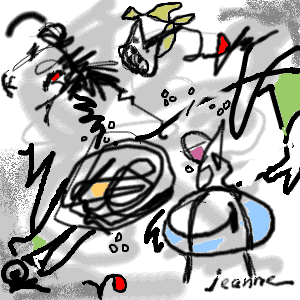
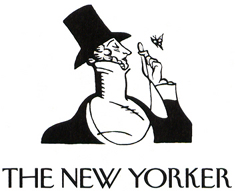 Last week the prestigious The New Yorker magazine wrote a long, critical piece on Michelle Bachmann, followed by the author of the piece doing an interview on NPR (“The Books and Believes Shaping Michelle Bachmann” which distorted the nature of Bachmann’s religious influences and oddly expressed dismay that some Christians believe their religion should inform everything they do, rather than be limited to churchy stuff. What followed felt like a firestorm—well, it seemed like a firestorm, but, to be honest, it was mostly a few voices trying to cry out in the wilderness, my own among them, that were mostly ignored by the The New Yorker editors and the many other places that picked up the story.
Last week the prestigious The New Yorker magazine wrote a long, critical piece on Michelle Bachmann, followed by the author of the piece doing an interview on NPR (“The Books and Believes Shaping Michelle Bachmann” which distorted the nature of Bachmann’s religious influences and oddly expressed dismay that some Christians believe their religion should inform everything they do, rather than be limited to churchy stuff. What followed felt like a firestorm—well, it seemed like a firestorm, but, to be honest, it was mostly a few voices trying to cry out in the wilderness, my own among them, that were mostly ignored by the The New Yorker editors and the many other places that picked up the story.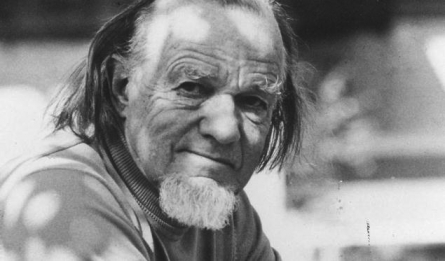 When I worked in campus ministry in the 1970s I showed the documentary that Bachmann says that she saw, the ten-part film series How Should We Then Live?, and I showed it more than once. (We still sell the DVD— here is a sample of part of his lecture on the Middle Ages—and gladly recommend the book.) It led to remarkably fruitful conversations, about
When I worked in campus ministry in the 1970s I showed the documentary that Bachmann says that she saw, the ten-part film series How Should We Then Live?, and I showed it more than once. (We still sell the DVD— here is a sample of part of his lecture on the Middle Ages—and gladly recommend the book.) It led to remarkably fruitful conversations, about I was glad to see Nancy Pearcey reply to the accusations about her and I linked at my own facebook to the important explanation of worldviews offered by her at Human Events. Her essay is called “Dangerous Influences: The New Yorker, Michelle Bachmann, and Me.” To explain what Lizza made murky she mentions the Dutch philosopher Herman Dooyeweerd, for crying out loud (as does the Wikipedia site about Francis Schaeffer) which has no relationship to the far right. I “liked” her piece and more trouble ensued.
I was glad to see Nancy Pearcey reply to the accusations about her and I linked at my own facebook to the important explanation of worldviews offered by her at Human Events. Her essay is called “Dangerous Influences: The New Yorker, Michelle Bachmann, and Me.” To explain what Lizza made murky she mentions the Dutch philosopher Herman Dooyeweerd, for crying out loud (as does the Wikipedia site about Francis Schaeffer) which has no relationship to the far right. I “liked” her piece and more trouble ensued.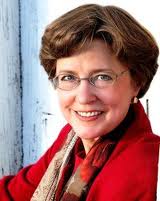 disturbing things about her views. Heck, I feel badly since we carry her books. If they said that stuff, we wouldn’t promote them, that’s for sure. One person, well intended I’m sure, reminded us of Jesus’ own command to rejoice when people say bad things about you, but I somehow couldn’t muster the faith or attitude. I care about what people think about the vision we share here, the books we carry, the God who we try to represent and glorify. I hate it when people are accused falsely, whether it is some of the far right saying scandalous things about Obama or whether it is the mainstream media saying unfair things about Schaeffer and Pearcey.
disturbing things about her views. Heck, I feel badly since we carry her books. If they said that stuff, we wouldn’t promote them, that’s for sure. One person, well intended I’m sure, reminded us of Jesus’ own command to rejoice when people say bad things about you, but I somehow couldn’t muster the faith or attitude. I care about what people think about the vision we share here, the books we carry, the God who we try to represent and glorify. I hate it when people are accused falsely, whether it is some of the far right saying scandalous things about Obama or whether it is the mainstream media saying unfair things about Schaeffer and Pearcey.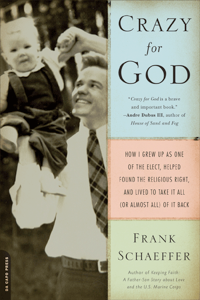 Frank Schaeffer has told that story, embellishing it a bit, I gather, in the controversial memoir Crazy for God: How I Grew Up
Frank Schaeffer has told that story, embellishing it a bit, I gather, in the controversial memoir Crazy for God: How I Grew Up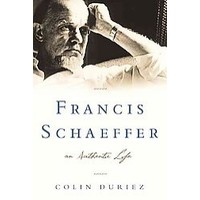 For those wanting a more traditional biography of Francis Schaeffer, the one by Colin Duriez, Francis Schaeffer: An Authentic Life (Crossway; $24.99) is the best at this point. It is just fantastic and is applauded by many who were there! Kudos.
For those wanting a more traditional biography of Francis Schaeffer, the one by Colin Duriez, Francis Schaeffer: An Authentic Life (Crossway; $24.99) is the best at this point. It is just fantastic and is applauded by many who were there! Kudos. 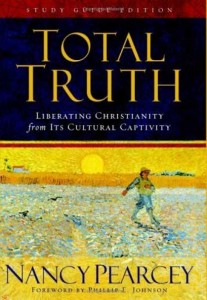 It is obvious to anyone who has read Ms Pearcey that she is one of today’s most able interpreter of the philosophical views of Mr. Schaeffer, channeling influences from Herman Dooyeweerd to Cornelius Van Til to Michael Polanyi offering a new voice for his old perspective. She hammers the fact-value dichotomy, what Schaeffer called the “upper story and lower story” views of truth, and she shows how this simple commitment to a robust view of truth effects everything. It is no news that she favors a serious and open-minded deconstruction of the orthodoxies of old school Darwinism, a matter which she explores even in her firs
It is obvious to anyone who has read Ms Pearcey that she is one of today’s most able interpreter of the philosophical views of Mr. Schaeffer, channeling influences from Herman Dooyeweerd to Cornelius Van Til to Michael Polanyi offering a new voice for his old perspective. She hammers the fact-value dichotomy, what Schaeffer called the “upper story and lower story” views of truth, and she shows how this simple commitment to a robust view of truth effects everything. It is no news that she favors a serious and open-minded deconstruction of the orthodoxies of old school Darwinism, a matter which she explores even in her firs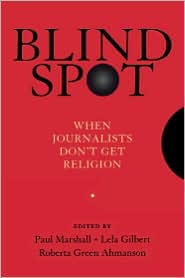 Blind Spot: When Journal
Blind Spot: When Journal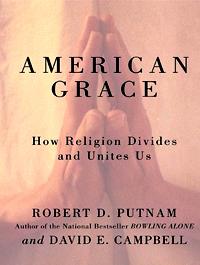 American Grace: How Religion Divides and Unites Us Robert Putnam and David Campbell (Simon & Schuster) $30.00 This thick tome of social science by the respected author of Bowling Alone may just be one of the most important books of recent years, a monumental work, elegant, descriptive and exceptionally insightful. I reviewed it briefly when it came out nearly a year ago, cribbing from the rave reviews from Doris Kearns Goodwin, Jon Meacham, Cornel West, and others. Rabbi Eric H. Yoffie (The President of Union for Reform Judaism) says that “this is the best overview of American religion in the last half of the twentieth century that I have ever read. If you care about American religion, you must read this book.” Religion matters, in private and in public. It isn’t coming out in paperback until February 2012 and it may be too important to wait. Highly recommended.
American Grace: How Religion Divides and Unites Us Robert Putnam and David Campbell (Simon & Schuster) $30.00 This thick tome of social science by the respected author of Bowling Alone may just be one of the most important books of recent years, a monumental work, elegant, descriptive and exceptionally insightful. I reviewed it briefly when it came out nearly a year ago, cribbing from the rave reviews from Doris Kearns Goodwin, Jon Meacham, Cornel West, and others. Rabbi Eric H. Yoffie (The President of Union for Reform Judaism) says that “this is the best overview of American religion in the last half of the twentieth century that I have ever read. If you care about American religion, you must read this book.” Religion matters, in private and in public. It isn’t coming out in paperback until February 2012 and it may be too important to wait. Highly recommended. 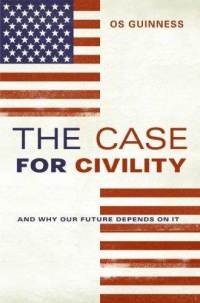 The Case for Civility: And Why Our Future Depends on It Os Guiness (HarperOne) $23.95 I reviewed this when it came out, declaring my huge appreciation for it, and have mentioned it time and again. One needn’t agree with all the proposals but it is a must-read for anyone interested in conversations about church and state, faith in public life, and the like. This is not just about public manners or civil etiquette—which itself would be helpful, but not quite the full point of this volume— but Guinness here explores how the first amendment offers a framework for freedom for and from religion. We must not move towards any God-based Theonomy or any kind of state church, of course. But a “naked public square” that privileges secularism is equally faulty. This “case” challenges the religious right and the secular left calling us all to take steps to solve the impasse of of our times through what he wonderfully explains in vigorous and inspiring prose as a “cosmopolitan public square.” I do hope you consider reading this and living out his important vision and urgent call to decency, civility, and, urgently, a robust commitment to the principles of our First Amendment.
The Case for Civility: And Why Our Future Depends on It Os Guiness (HarperOne) $23.95 I reviewed this when it came out, declaring my huge appreciation for it, and have mentioned it time and again. One needn’t agree with all the proposals but it is a must-read for anyone interested in conversations about church and state, faith in public life, and the like. This is not just about public manners or civil etiquette—which itself would be helpful, but not quite the full point of this volume— but Guinness here explores how the first amendment offers a framework for freedom for and from religion. We must not move towards any God-based Theonomy or any kind of state church, of course. But a “naked public square” that privileges secularism is equally faulty. This “case” challenges the religious right and the secular left calling us all to take steps to solve the impasse of of our times through what he wonderfully explains in vigorous and inspiring prose as a “cosmopolitan public square.” I do hope you consider reading this and living out his important vision and urgent call to decency, civility, and, urgently, a robust commitment to the principles of our First Amendment. 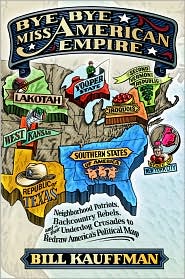 Bye Bye Miss American Empire: Neighborhood Patriots, Backcountry Rebels, and Their Underdog Crusades to Redraw America’s Political Map Bill Kauffman (Chelsea Green) $17.95 I gladly named this as one of the best books of 2010 and couldn’t stop telling interested folks (and, well, some who weren’t so interested) about this cool and remarkably intricate history of parts of the country that want to secede from the union. Weird, I know, but bear with me–this is a fabulous read. Look, I don’t know what I think about all this but I do like the quote from the Guinness book, spoken by JFK years ago. Our democratic witness should “make the world safe for diversity.” Want diversity? Really? Want to hear the people–real people? Listen to the crazy folk from the Yooper State, the Lakotah Nation, the Second Vermont Republic, The Republic of West Kansas. Did you know about the State of Jefferson? Take a stroll with Kauffman through the deep South hearing out those–including blacks!—who just want to hold on to their own unique barbequing culture. Listen to the longings for liberation of some from places like Hawaii, who wonder why the US colonized them in the first place. These backyard anarchists, localist yahoos and populists against Empire sometimes heroically want self-rule. Some just want to be left alone. Some are sorta nutty. Is this a great country, or what? I’d vote for Bill Kauffman for President if he’d run, but I can tell ya now that he ain’t. He’s too busy in his own home town, coaching Little League and fighting WalMart. Read his story about leaving Washington activism for his own front porch and his own home town in the wonderful memoir Dispatches from the Muckdog Gazette: An Affectionate Account A Small Town’s Fight to Survive (Picador; $14.00.) Kauffman knows more about American history, I’d bet, than anybody you’ve ever met and probably more than almost anybody you’ve ever read. And he’s fun: he’s so far to the left he’s right. Or so far to the right, he’s left. Anybody who wants to understand America–that is, her people—heck, anybody who likes the History Channel’s How The States Got Their Shapes—ought to read through this amazingly rich ride full of very long sentences through the backcountry of the U S of A. The Republic of Texas? Why not? Seriously.
Bye Bye Miss American Empire: Neighborhood Patriots, Backcountry Rebels, and Their Underdog Crusades to Redraw America’s Political Map Bill Kauffman (Chelsea Green) $17.95 I gladly named this as one of the best books of 2010 and couldn’t stop telling interested folks (and, well, some who weren’t so interested) about this cool and remarkably intricate history of parts of the country that want to secede from the union. Weird, I know, but bear with me–this is a fabulous read. Look, I don’t know what I think about all this but I do like the quote from the Guinness book, spoken by JFK years ago. Our democratic witness should “make the world safe for diversity.” Want diversity? Really? Want to hear the people–real people? Listen to the crazy folk from the Yooper State, the Lakotah Nation, the Second Vermont Republic, The Republic of West Kansas. Did you know about the State of Jefferson? Take a stroll with Kauffman through the deep South hearing out those–including blacks!—who just want to hold on to their own unique barbequing culture. Listen to the longings for liberation of some from places like Hawaii, who wonder why the US colonized them in the first place. These backyard anarchists, localist yahoos and populists against Empire sometimes heroically want self-rule. Some just want to be left alone. Some are sorta nutty. Is this a great country, or what? I’d vote for Bill Kauffman for President if he’d run, but I can tell ya now that he ain’t. He’s too busy in his own home town, coaching Little League and fighting WalMart. Read his story about leaving Washington activism for his own front porch and his own home town in the wonderful memoir Dispatches from the Muckdog Gazette: An Affectionate Account A Small Town’s Fight to Survive (Picador; $14.00.) Kauffman knows more about American history, I’d bet, than anybody you’ve ever met and probably more than almost anybody you’ve ever read. And he’s fun: he’s so far to the left he’s right. Or so far to the right, he’s left. Anybody who wants to understand America–that is, her people—heck, anybody who likes the History Channel’s How The States Got Their Shapes—ought to read through this amazingly rich ride full of very long sentences through the backcountry of the U S of A. The Republic of Texas? Why not? Seriously.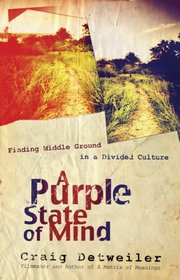 A Purple State of Mind: Finding Middle Ground in a Divided Culture Craig Detweiler Harvest House) $13.99 Not up for the wild ride against Empire and into the localist’s dreams, narrated by history geek Bill Kauffman? Fair enough, he’s an acquired taste. This is a more simple book, excellent in many ways, by an astute cultural critic (film scholar, too) and PhD who taught at Fuller Theological Seminary and now is at Pepperdine. This upbeat call to move past the culture wars—purple is a blend of red and blue, of course—was somewhat inspired as an old college friend of the author’s (a guy who helped him cross the line of faith and become a follower of Jesus) who renounced his own faith and wrote a book against the Christian right. Detweiler sees himself as a purple Christian, conservative on some things, liberal on some things, traditionalist in a good way, but progressive at times, too. Yet, A Purple State of Mind isn’t even about politics as such, but is interested in an “in but not of” the world wise and discerning Christian cultural engagement. It explains why followers of Jesus must offer a view of life that is grace-filled and, while Biblically-grounded, anything but judgmental. Is all about Jesus, less about religion. It celebrates love and joy but also faces disappointments, and is honest about life and life’s struggles. Such a view wants to hear the story of others, wants to build bridges. This sort of purple view tries to embody the love of God but avoids evangelical cliches, encourages creativity and the arts but yet isn’t disi
A Purple State of Mind: Finding Middle Ground in a Divided Culture Craig Detweiler Harvest House) $13.99 Not up for the wild ride against Empire and into the localist’s dreams, narrated by history geek Bill Kauffman? Fair enough, he’s an acquired taste. This is a more simple book, excellent in many ways, by an astute cultural critic (film scholar, too) and PhD who taught at Fuller Theological Seminary and now is at Pepperdine. This upbeat call to move past the culture wars—purple is a blend of red and blue, of course—was somewhat inspired as an old college friend of the author’s (a guy who helped him cross the line of faith and become a follower of Jesus) who renounced his own faith and wrote a book against the Christian right. Detweiler sees himself as a purple Christian, conservative on some things, liberal on some things, traditionalist in a good way, but progressive at times, too. Yet, A Purple State of Mind isn’t even about politics as such, but is interested in an “in but not of” the world wise and discerning Christian cultural engagement. It explains why followers of Jesus must offer a view of life that is grace-filled and, while Biblically-grounded, anything but judgmental. Is all about Jesus, less about religion. It celebrates love and joy but also faces disappointments, and is honest about life and life’s struggles. Such a view wants to hear the story of others, wants to build bridges. This sort of purple view tries to embody the love of God but avoids evangelical cliches, encourages creativity and the arts but yet isn’t disi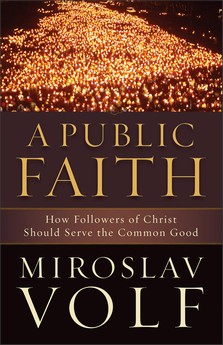 A Public Faith: How Followers of Christ Should Serve the Common Good Miroslav Volf (Brazos) $21.99 I gave this a brief review in my column at Comment, and only scratched the surface of what can be said. Volf, of Yale Divinity School, has given us one of the best books of the year, perhaps of the decade! For a time such as this, indeed. Volf lived through genocide in Eastern Europe and knows about exclusion, marginalized faith, and all manner of confused views of the relationship of faith and public life. He has written extensively on peacemaking, forgiveness, and just did a book on gracious Christian view of Islam called Allah. This wonderful call to care for the common good within a framework of pluralism is more urgent, I believe, than most of us realize. Volf is clear about the dangers and problems of a public faith. But he shows its great necessity. There are rave, rave endorsements on the back from Nicholas Wolterstorff, Richard Mouw, and Randall Balmer. Many are saying that this is must-read, and we at Hearts & Minds agree: a highly recommended book.
A Public Faith: How Followers of Christ Should Serve the Common Good Miroslav Volf (Brazos) $21.99 I gave this a brief review in my column at Comment, and only scratched the surface of what can be said. Volf, of Yale Divinity School, has given us one of the best books of the year, perhaps of the decade! For a time such as this, indeed. Volf lived through genocide in Eastern Europe and knows about exclusion, marginalized faith, and all manner of confused views of the relationship of faith and public life. He has written extensively on peacemaking, forgiveness, and just did a book on gracious Christian view of Islam called Allah. This wonderful call to care for the common good within a framework of pluralism is more urgent, I believe, than most of us realize. Volf is clear about the dangers and problems of a public faith. But he shows its great necessity. There are rave, rave endorsements on the back from Nicholas Wolterstorff, Richard Mouw, and Randall Balmer. Many are saying that this is must-read, and we at Hearts & Minds agree: a highly recommended book.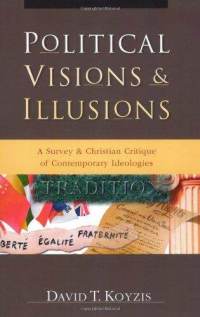 Political Visions and Illusions: A Survey & Christian Critique of Contemporary Ideologies David T. Koyzis (IVP) $20.00 Okay, I trot this out nearly every year when there are elections or political debates or if there are matters on the news that seem to exhibit the “culture wars” debates. And now is that time, for sure. It just amazes me how little most people know about the background ideas and philosophical foundations for both right and left wing writers, pundits, movements. In this complex and important book Koyzis adeptly explains where ideas come from, what liberals and conservatives really believe (or assume) and whether those guiding ideals do or do not comport with a consistently Christian worldview. How do legitimate ideas end up becoming idols and get hardened into ideologies? What are the dynamics of ideological conflict in our new century? Why does the typical “liberal vs conservative” story not really do justice to the more complex realities behind political movements? This is beyond astute, it is genius, the best and most comprehensive overview of political thinking that I know of. It uses words appropriately, explaining how political philosophers have used phrases and ideas in the past, and helps us all get a handle on what is going on in our heated civic debates. Highly recommended.
Political Visions and Illusions: A Survey & Christian Critique of Contemporary Ideologies David T. Koyzis (IVP) $20.00 Okay, I trot this out nearly every year when there are elections or political debates or if there are matters on the news that seem to exhibit the “culture wars” debates. And now is that time, for sure. It just amazes me how little most people know about the background ideas and philosophical foundations for both right and left wing writers, pundits, movements. In this complex and important book Koyzis adeptly explains where ideas come from, what liberals and conservatives really believe (or assume) and whether those guiding ideals do or do not comport with a consistently Christian worldview. How do legitimate ideas end up becoming idols and get hardened into ideologies? What are the dynamics of ideological conflict in our new century? Why does the typical “liberal vs conservative” story not really do justice to the more complex realities behind political movements? This is beyond astute, it is genius, the best and most comprehensive overview of political thinking that I know of. It uses words appropriately, explaining how political philosophers have used phrases and ideas in the past, and helps us all get a handle on what is going on in our heated civic debates. Highly recommended.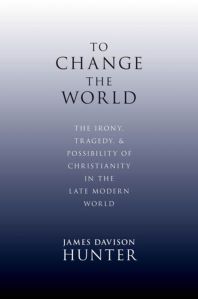 To Change the World: The Irony, Tragedy, and Possibility of Christianity in the Late Modern World James Davison Hunter (Oxford University Press) $27.95 Forgive my colloquialism but this is one brainy dude and this is one sophisticated book. Seriously, if you haven’t considered reading this, you haven’t been paying attention to BookNotes. We’ve cited it often, noted that we may not agree with it all, and assured readers that it may be one of the more important scholarly books on the sociology of social change written in our lifetime. Hunter, a thought-provoking scholar at UVA, who ends up being the guy who coined the phrase “culture wars” has garnered, not surprisingly, rave reviews from super-heavy sociological philosophers like Charles Taylor and esteemed writers like Robert Bellah who says it is “extraordinarily important.” Nicolas Wolterstorff says it is “a feat of great intellectual imagination.” Tim Keller says he learned much from it. For what it is worth he is very critical of the Christian right and the Christian Left. And just about everybody else, too, but that’s another story.
To Change the World: The Irony, Tragedy, and Possibility of Christianity in the Late Modern World James Davison Hunter (Oxford University Press) $27.95 Forgive my colloquialism but this is one brainy dude and this is one sophisticated book. Seriously, if you haven’t considered reading this, you haven’t been paying attention to BookNotes. We’ve cited it often, noted that we may not agree with it all, and assured readers that it may be one of the more important scholarly books on the sociology of social change written in our lifetime. Hunter, a thought-provoking scholar at UVA, who ends up being the guy who coined the phrase “culture wars” has garnered, not surprisingly, rave reviews from super-heavy sociological philosophers like Charles Taylor and esteemed writers like Robert Bellah who says it is “extraordinarily important.” Nicolas Wolterstorff says it is “a feat of great intellectual imagination.” Tim Keller says he learned much from it. For what it is worth he is very critical of the Christian right and the Christian Left. And just about everybody else, too, but that’s another story. 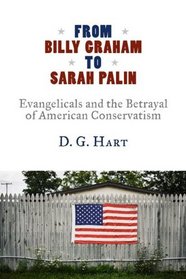 From Billy Graham to Sarah Palin: Evangelicals and the Betrayal of American Conservativsm D.G. Hart (Eerdmans) $25.00 I’m usually pretty frustrated when even well-schooled journalists don’t seem to know much about what evangelicalism is, or what creedal faith is about. As it ends up, that ain’t half of it: as half the blogs yapping about Francis Schaeffer and Michelle Bachmann and Rick Perry have implied, they don’t know what conservatism is, either. I’m not sure I do, either, after starting this very provocative and serious book which—to make a complicated story very short—says that the dynamism inherent in revivalistic evangelicalism, that wants to make the world a better place, doesn’t really lead, ultimately, to conserving much. Hart, a Paleo-at-least, finds this troubling. Authentic conservatism, he shows, is not enhanced by the likes of mega-churches rallying around the likes of Sarah Palin. I’m rubbing my head from this category-changing, mind-bending study suggesting that those evangelicals that are conservative are insufficently so in ways that really matter. Mike Cromartie of the Ethics and Public Policy Center says to get this “for your pastor and also give one to your favorite political activist. By doing so you will raise the level of theological, and political, conversation in the church.”
From Billy Graham to Sarah Palin: Evangelicals and the Betrayal of American Conservativsm D.G. Hart (Eerdmans) $25.00 I’m usually pretty frustrated when even well-schooled journalists don’t seem to know much about what evangelicalism is, or what creedal faith is about. As it ends up, that ain’t half of it: as half the blogs yapping about Francis Schaeffer and Michelle Bachmann and Rick Perry have implied, they don’t know what conservatism is, either. I’m not sure I do, either, after starting this very provocative and serious book which—to make a complicated story very short—says that the dynamism inherent in revivalistic evangelicalism, that wants to make the world a better place, doesn’t really lead, ultimately, to conserving much. Hart, a Paleo-at-least, finds this troubling. Authentic conservatism, he shows, is not enhanced by the likes of mega-churches rallying around the likes of Sarah Palin. I’m rubbing my head from this category-changing, mind-bending study suggesting that those evangelicals that are conservative are insufficently so in ways that really matter. Mike Cromartie of the Ethics and Public Policy Center says to get this “for your pastor and also give one to your favorite political activist. By doing so you will raise the level of theological, and political, conversation in the church.” 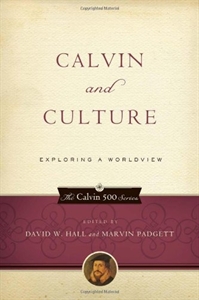 Calvin and Culture: Exploring a Worldview edited by David Hall and Marvin Padgett (P&R) $19.99 For the 500th anniversary of John Calvin this anthology was created showing how Calvin has influenced various aspects of modern life. Grounded in historical reformation-era studies, this explores how a Reformed vision has shaped the rise of the arts, business, economics, history, journalism, law, literature, medicine music, philosophy, politics and science. As reporters and pundits mock Schaeffer for his “wide as life” faith and his strict adherence to a conservative Calvinism, we all ought to know a bit about the truth of the matter. Calvinist or not (heck, whether you are a Christian or not) this kind of amazingly rich historical record is very, very helpful to know. Further, Paul Marshall—recall that I started this
Calvin and Culture: Exploring a Worldview edited by David Hall and Marvin Padgett (P&R) $19.99 For the 500th anniversary of John Calvin this anthology was created showing how Calvin has influenced various aspects of modern life. Grounded in historical reformation-era studies, this explores how a Reformed vision has shaped the rise of the arts, business, economics, history, journalism, law, literature, medicine music, philosophy, politics and science. As reporters and pundits mock Schaeffer for his “wide as life” faith and his strict adherence to a conservative Calvinism, we all ought to know a bit about the truth of the matter. Calvinist or not (heck, whether you are a Christian or not) this kind of amazingly rich historical record is very, very helpful to know. Further, Paul Marshall—recall that I started this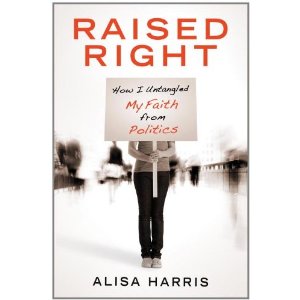 Raised Right: How I Untangled My Faith from Politics Alisa Harris (Waterbook) $14.99 I will be writing more about this when it releases in a few weeks (it is still unavailable, shipping early September 2011.) I’m almost done with my advanced copy and I’m mostly astonished at this young woman’s story, her being raised in a very active Christian right-wing family—she picketed abortion clinics as a child, holding signs that she surely couldn’t have known what they meant—and becoming active (oooh, how she was active!) in Republican politics as a teenager. This narrates how she has come to a different understanding of her faith and no small amount of serious anguish, anguish that I would guess many of us have felt. Ms Harris is a fantastic writer, making this one of those great memoirs that is easy to read, fun and well-told, and yet very memorable–what a story! Has she just shifted, as many of her twenty-something young evangelical peers have, from a right wing faith to a left wing one? Is her organizing demonstrations at the Bank of America and her advocacy for the poor, just the flip side of her still politicized faith? As she untangles and rethinks things, she lets us look over her shoulder, watch as her rather exciting New York life unfolds, and we get to be a part of the religious coming of age of a very sharp young woman, who is a reporter and very fine writer. I suggest that the story isn’t over and I predict she will write more. I hope so. This is, in many ways, what this whole crazy New Yorker bigotry about Bachmann and the “exotic” nature of the Christian right is all about. It guess it is rather exotic, as is anyone who takes faith seriously these days, and lives out her principles in public ways. Harris’ conservative family has done this, and it has left its marks, in ways that are good and maybe not so good. One story, one family, one very thoughtful twenty-something. I could hardly put this book down and trust you find pleasure, empathy and insight, regardless of your thoughts about faith, politics, or social justice.
Raised Right: How I Untangled My Faith from Politics Alisa Harris (Waterbook) $14.99 I will be writing more about this when it releases in a few weeks (it is still unavailable, shipping early September 2011.) I’m almost done with my advanced copy and I’m mostly astonished at this young woman’s story, her being raised in a very active Christian right-wing family—she picketed abortion clinics as a child, holding signs that she surely couldn’t have known what they meant—and becoming active (oooh, how she was active!) in Republican politics as a teenager. This narrates how she has come to a different understanding of her faith and no small amount of serious anguish, anguish that I would guess many of us have felt. Ms Harris is a fantastic writer, making this one of those great memoirs that is easy to read, fun and well-told, and yet very memorable–what a story! Has she just shifted, as many of her twenty-something young evangelical peers have, from a right wing faith to a left wing one? Is her organizing demonstrations at the Bank of America and her advocacy for the poor, just the flip side of her still politicized faith? As she untangles and rethinks things, she lets us look over her shoulder, watch as her rather exciting New York life unfolds, and we get to be a part of the religious coming of age of a very sharp young woman, who is a reporter and very fine writer. I suggest that the story isn’t over and I predict she will write more. I hope so. This is, in many ways, what this whole crazy New Yorker bigotry about Bachmann and the “exotic” nature of the Christian right is all about. It guess it is rather exotic, as is anyone who takes faith seriously these days, and lives out her principles in public ways. Harris’ conservative family has done this, and it has left its marks, in ways that are good and maybe not so good. One story, one family, one very thoughtful twenty-something. I could hardly put this book down and trust you find pleasure, empathy and insight, regardless of your thoughts about faith, politics, or social justice. 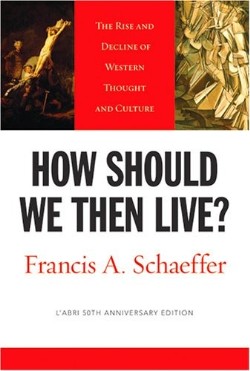 Here you can find a list of Schaffer’s books and if they are in print, we probably have them. I mentioned a few favorites earlier in the column (like the short Art & the Bible and True Spiritualty) but I think I’d start with How Should We Then Live? (Crossway; $19.99.) Unless you prefer philosophy, at which point you should get his famous The God Who Is There (IVP; $15.00.) The anniversary edition has a good forward by Jim Sire, too.)
Here you can find a list of Schaffer’s books and if they are in print, we probably have them. I mentioned a few favorites earlier in the column (like the short Art & the Bible and True Spiritualty) but I think I’d start with How Should We Then Live? (Crossway; $19.99.) Unless you prefer philosophy, at which point you should get his famous The God Who Is There (IVP; $15.00.) The anniversary edition has a good forward by Jim Sire, too.) 

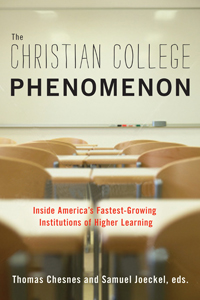
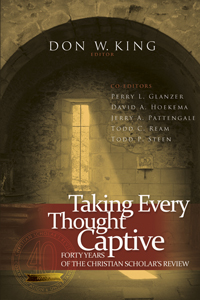
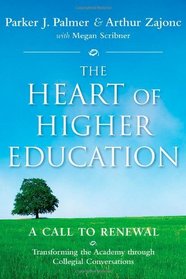
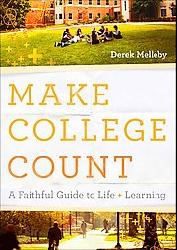


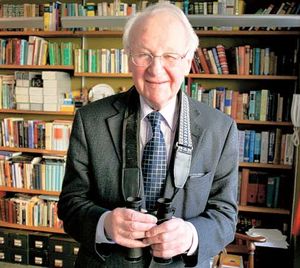

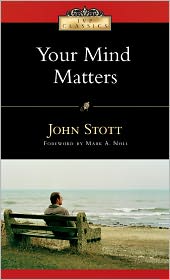

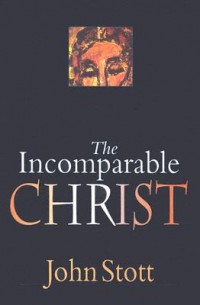
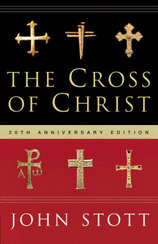
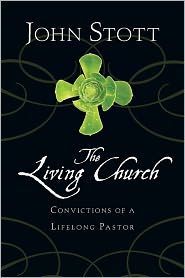
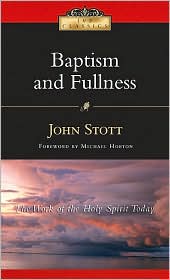

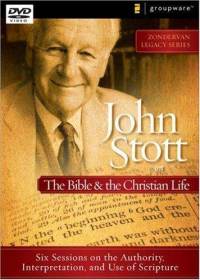
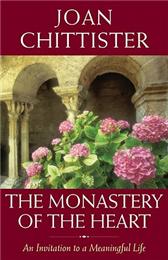
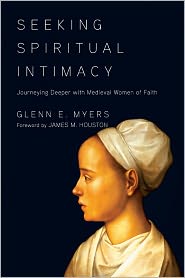
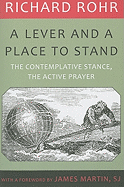
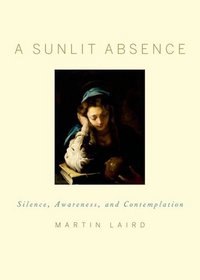 A Sunlit Absence: Silence, Awareness, and Contemplation Martin Laird (Oxford University Press) $18.95 You may know of Laird’s Into the Silent Land, the much talked about and often recommend book that came out just a few years ago from this Catholic priest and professor at Villanova University here in Pennsylvania. Rave reviews came from sources as unique as Rowan Williams and Christianity Today. This brand new one seems to be a sequel or companion volume (with the same smallish chunky size that so nicely fits the hand) and is an elegant and beautifully written reflection on the need for silence in our lives. It gets a bit heavy at points—drawing on the best of the contemplative tradition he calls for a spaciousness that accepts sound and silence and that rejects foundational dualisms. Whew. If you’ve read any of the accounts of the desert fathers or appreciate Russian Orthodox spirituality this might appeal to you.
A Sunlit Absence: Silence, Awareness, and Contemplation Martin Laird (Oxford University Press) $18.95 You may know of Laird’s Into the Silent Land, the much talked about and often recommend book that came out just a few years ago from this Catholic priest and professor at Villanova University here in Pennsylvania. Rave reviews came from sources as unique as Rowan Williams and Christianity Today. This brand new one seems to be a sequel or companion volume (with the same smallish chunky size that so nicely fits the hand) and is an elegant and beautifully written reflection on the need for silence in our lives. It gets a bit heavy at points—drawing on the best of the contemplative tradition he calls for a spaciousness that accepts sound and silence and that rejects foundational dualisms. Whew. If you’ve read any of the accounts of the desert fathers or appreciate Russian Orthodox spirituality this might appeal to you.
